What Noam Chomsky Can Teach Us About Freedom of Speech
+ My Conversation with Mickey Z. on the Post-Woke Podcast
“If you believe in freedom of speech, you believe in freedom of speech for views you don’t like. Goebbels was in favor of freedom of speech for views he liked. So was Stalin. If you’re in favor of freedom of speech, that means you’re in favor of freedom of speech precisely for views you despise. Otherwise, you’re not in favor of freedom of speech.”
—Noam Chomsky, interview included in Manufacturing Consent
I know what you’re thinking.
Noam Chomsky seems an unlikely companion for a disquisition in defense of civil liberties.
I’m not talking about the authoritarian, enemy-defining, menticided Chomsky who in 2021 advocated for the isolation, stigmatization, and deprivation of those who exercise their right to refuse an experimental injection.
I’m talking about Vintage Chomsky.
The Chomsky who wrote Manufacturing Consent.
The Chomsky who uncloaked the mud-throwing tactic of kafkatrapping:
“I don’t mind the denunciations, frankly. I mind the lies. I mean intellectuals are very good at lying. They’re professionals at it, in a wonderful technique. There’s no way of responding to it. If somebody calls you, you know, an anti-semite, what can you say? ‘I’m not an anti-semite.’ Somebody says you’re a racist, you’re a Nazi, you always lose. The person that throws the mud always wins. Because there’s no way of responding to such charges.”
The Chomsky who defended a Holocaust denier’s right to express his views:
“A professor of French literature was … brought to trial for ‘falsification of History,’ and later condemned for this crime, the first time that a modern Western state openly affirmed the Stalinist-Nazi doctrine that the state will determine historical truth and punish deviation from it. Later he was beaten practically to death by Jewish terrorists. As of now, the European and other intellectuals have not expressed any opposition to these scandals; rather, they have sought to disguise their profound commitment to Stalinist-Nazi doctrine by following the same models, trying to divert attention with a flood of outrageous lies.”
The Chomsky who recognized the don’t-think-of-a-white-bear Streisand effect created by laws that criminalize unpleasant speech and thought:
“I don’t think the way to deal with neo-fascist groups is to try to shut them up forcefully. You should try to win the argument. It’s quite remarkable to see how it works. So take say, Holocaust denial. In a lot of Europe, Holocaust denial is a crime.…
“In the United States, it’s not a crime. The consequence is that in the United States, Holocaust denial is unknown. There’s plenty of it.… Nobody pays any attention to it.…
“In France and a lot of Europe, it’s all over the front pages, ton of publicity. Some guy somewhere does some marginal thing, everybody knows about it. It’s a way of giving publicity to Holocaust denial. If you treat it the sensible way, it’s about like somebody claiming the earth is flat—okay, forget it, it has no impact.
“I just don’t think it’s even tactically the right way to deal with say, neo-fascist groups, and it does give them an argument. As you said, they can claim freedom of speech, which is a value we all uphold.”
The Chomsky who identified the “Stalinist-style technique to silence critics of the holy state” and “the endless lies of the Anti-Defamation League.”
The Chomsky who warned us about the five filters of the mass media machine.
The Chomsky who pointed out “the difference between defending a person’s right to express his views and defending the views expressed.”
The Chomsky who condemned the hegemonic State:
“There’s no concern for justice and there never was. States don’t have a concern for justice. States don’t act on moral grounds.…
“They are instruments of power and violence, that’s true of all states; they act in the interests of the groups that dominate them, they spout the nice rhetorical line, but these are just givens of the international system.”
The Chomsky who exposed the hypocrisy of practicing censorship in the name of “protecting” Jews:
“It is a poor service to the memory of the victims of the Holocaust to adopt a central doctrine of their murderers.”
That Chomsky.
But can we learn anything from present-day Chomsky?
We can learn that no matter how awake we think we are, how aware we are of the tricks used to propagandize us, how skeptical we remain of media and the State, or how knowledgeable we are about history, there but for the grace of God go we.
We can learn that we must ceaselessly guard our hearts from the emotional manipulators, our minds from the behavioral psychologists, our souls from the totalitarian morality inverters.
And we can learn that perhaps even those prodigal thinkers who have strayed from the truth-seeking path can sometimes find their way back, step by step, like Chomsky appears to be doing in this July 2022 interview, where he states:
“Without freedom of speech, we have no hope of dealing with any of the problems that concern us. We can see this very clearly today, very dramatically. Take the United States today. It is living under a kind of totalitarian culture which has never existed in my lifetime and is much worse in many ways than the Soviet Union before Gorbachev.…
“The United States has imposed constraints on freedom of access to information which are astonishing and which in fact go beyond what was the case in post-Stalin Soviet Russia.…
“Anyone who dares to break the party line on the dominant issue of today—Ukraine—is simply demonized, vilified. Can’t be sent to the gulag; it’s a free country still, but you can barely talk. And that has very dangerous implications for the current situation and beyond. All of this is very serious.”
Now substitute “COVID” for “Ukraine,” Noam. And every other dominant narrative pumped out by Pravda. And you might just learn something from—and about—yourself, too.
My Conversation with Mickey Z. on the Post-Woke Podcast
The magnificently magnanimous Mickey Z. and I discussed Chomsky as an object lesson in humility and a reminder of the need to perpetually practice “intellectual self-defense” in a recent Post-Woke Podcast. Take a listen and sign up for Mickey Z.’s Substack to catch more stimulating conversations and posts. (Tidied AI transcript below thanks to the generous efforts of a friend who wishes to remain anonymous; I’ve done some cosmetic cleanup for clarity and flow and inserted links to referenced materials.)
I also encourage you to support his Helping Homeless Women NYC project. For nearly seven years, Mickey has been buying food, supplies, and gift cards to hand out to homeless women, practicing on-the-ground love instead of virtue-signaling “activism.”
MZ: Hello, free thinkers. I’m Mickey Z, and I welcome you to Post-Woke, the New York City–based podcast where we practice intellectual self-defense.…
As I’ve documented on this podcast and as a guest elsewhere, I was once a prominent “left” activist before eventually moving on by mutual decree. I’ve since been embraced by what might be called the right, only to find that in many ways, it was a mirror image of the radical left I knew. For example, preaching to the converted, infighting high school–like tactics, virtue-signaling, groupthink, confirmation bias, the silencing of questioners, thought policing, and paranoia.
What I’ve seen is that people all across the ideological spectrum believe they are the truth-teller who is so effective that the cabal must specifically bring them down. And we’ve reached the point now in this so-called medical freedom truth movement that we have dissident medical professionals clogging up Zoom with nonstop conferences, some of which have already reached the third annual stage. So, across the spectrum, the true believers are left wondering when and if the sheeple or the Good Germans or whatever they call them will ever wake up. So, with all that as preface, I want to bring in my guest, Margaret Anna Alice. Welcome to Post Woke.
MAA: Thank you, Mickey. It’s an honor to be here.
MZ: Thank you for being here. So, having said all I said, I want to clarify to you and the listeners, it’s not about confrontation, because I’m not sure where you stand, anyway. I am genuinely interested if and how our activist experiences might differ. So, I’m guessing that a big chunk of my listeners are familiar with you. But I want to start with this as a question, What were you doing leading up to March 2020, and what led you to your Substack page and its large and sustained readership?
MAA: I never really considered myself an activist, especially before March 2020. I have always thought of myself as a writer, and I’ve always been interested in a broad spectrum of disciplines—politics, psychology, literature, lots of dystopian fiction, things like that, and neurology, neuropsychology.
Pretty much all of the topics I naturally gravitated toward throughout my life as a reader and a writer converged in March 2020. And because I’ve always been interested in propaganda and mass control and psychological manipulation, it was quite evident to me from the outset that this was a manufactured crisis. I was initially just attempting to reach out to people I knew. I was using Nextdoor.com and connecting with people in my community and trying to expose what to me were very obvious lies and attempts at coercion. And I pretty quickly began seeing it was almost impossible to communicate because almost anytime I would share a link to a scientist or a physician or some documentation that countered the mainstream narrative that was all in lockstep, my comments would get deleted.
It was in April of 2021 that I was writing a comment in response to a Nextdoor post, and [the post] basically said, “These masks are not about health; they’re all about control.” By the time I finished writing my comment, the post had been disappeared.
That is what prompted me to start my Substack. I wanted a place to share my writing where I wouldn’t have to worry about being censored. And I didn’t really expect that much to come out of it, but my husband encouraged me to submit my article to OffGuardian.
My first article was called A Primer for the Propagandized: Fear Is the Mind Killer, and my audience grew from there. I was really surprised at the overwhelming enthusiasm with which it was greeted. I was just trying to formulate all of the things that were swirling around in my head … the divisive rhetoric, the fearfulness that was being sown, and the counterintuitive “health” recommendations that contradicted everything we previously understood regarding herd immunity and the inefficacy of masks for respiratory illnesses, things like that. So it blossomed from there.
MZ: Okay, and I could totally relate to that. Thank heaven for Substack in general, but certainly during this situation, and there is a lot of solace to be found in even just being heard. And I can relate to you we’re being shut down prior to being on Substack, and I was using Facebook, believe it or not.
MAA: Wow.
MZ: And it was sort of self-sabotage to stay on there at this point. So, the OffGuardian article helped to bring people over, and then it blossomed. I mean, I would assume—you’re a good writer. You offer copious amounts of evidence. I’ve never seen anyone embed more links.
I’m sure you’ve heard that a thousand times, but I’m a fan of that because going back to a different time period, two of my much earlier books were alternative histories related to war propaganda. And they were very, very diligently annotated because for all the reasons that everyone listening would know is that if you come on a podcast and say, all right, guys, you got to wear two masks, no one’s going to ask you for evidence. But if you say anything to the contrary, they’re going to squeeze you and not give you enough time and make you look like you’re a lunatic. And it’s very brilliant at creating this.
So, once you’re on Substack and begin to build an audience, did you feel—as I did after some point—that it was useful, but at some point you felt like maybe you were singing to the choir, and then probably the people who disagreed with you were on some other site, maybe Facebook or Twitter at that point, and they were singing to their choir or being sung to by an eloquent voice like yours? And that creates even deeper schisms between the two sides. Did you notice that? And if so, how did you manage that?
MAA: Good question. I actually did gradually come to realize it was going to be almost impossible to get anyone who was on the other side of the debate to actually read my articles. I started my Letters series with a piece called Letter to a Covidian. And I know that term can come across as maybe dismissive of the people I was trying to address, but I of course borrowed it from CJ Hopkins, and for me, it wasn’t necessarily about denigrating the people I was trying to reach but rather about showing them their own values had become inverted and their compassion weaponized against them as part of this inculcation into this ideological compliance that was causing them to turn against their neighbors.
And instead of coming together, like typically occurs in a genuine crisis, the propagandists were turning them against each other. I was trying to reach into that part of them that I told them in the letter … go back to two years ago and ask what yourself from two years ago would think about the way you’re behaving and you’re thinking now.
To answer your question, even though I can’t necessarily directly reach the people I’m trying to talk to and wake up, I feel like my work serves as essentially a tool. I have a Wake-up Toolkit that organizes all of my articles by topics and really, it’s something that I’m creating for my readers who are already awake, but they can then use that to help wake up people they know. It isn’t necessarily that I’m reaching them directly, but my readers can use it for their own purposes. They can pull out the evidence.
Like you said, I do extensively hyperlink practically every word of my articles. And that’s because I’m not going to sit down and say, “Here’s what I believe, and this is what you should believe, too.” I am simply presenting the evidence I have compiled, and I link to it so people can then go and assess it and make their own decisions. I’m trying to empower people to be independent critical thinkers and not to just repeat or regurgitate a mantra like “Trust The Science” that the propagandists have pounded into their heads.
Going back to preaching to the choir. I wrote a piece maybe around a year ago called Letter to My Karass.… I have a number of pieces that are dialogues with people I’m debating on different platforms—Twitter, Facebook, whatever, who are very entrenched in their views. And it became clear that presenting evidence and trying to argue rationally and show my perspective versus theirs was causing the backfire effect, which caused them to dig their heels in deeper in terms of their point of view. And so I was realizing my role isn’t necessarily to try and wake up people who don’t want to be woken up, because that’s not going to work. What I am here partly for is to inspire and galvanize the Resistance and provide tools for my readers to do their good work in whatever form it takes.
MZ: Thank you for that. Yeah, it’s the Wake-up Toolkit, right, that you have there. I’m saying—talking to the listeners now—if there is an area related to the past three-plus years, it’s covered in there. And if you have people in your life demanding evidence, like I’m talking about tons of evidence, it is an incredible resource.
And I do want to come back to at some point in this conversation, I want to come back to your saying how someone in your position or mine can’t directly reach a lot of the people we want to reach. I want to use that as a segue later, and I definitely want to come back in a minute to that you’re not telling people what to think, but I really like the phrase that compassion is being weaponized—because you’re then talking about asking people to put themselves in their mindset pre-Plandemic.
It reminds me of what people do to talk to folks who have been drawn into a cult, where people say something like, How could you be so stupid to be in a cult? But quite often it’s a very intelligent, compassionate person who, as you phrased it, had their compassion weaponized. It’s like they suddenly find this tunnel vision avenue where they can actually make a difference in the world—only, they’re being exploited.
And I don’t think it’s inaccurate to talk about what the mainstream narrative has done as being very cultic, so I’m glad you highlight that because … it’s recognizing the folks we’re disagreeing with in many cases have good intentions and are motivated by emotions like compassion. It’s just that the more they’re being pushed, suddenly you can’t find any of that compassion in there.
But I do want to share something. When you talked about how important it is to not tell people what to think, it reminds me of a TED Talk by an author named Julia Galef.… She juxtaposes the soldier mentality, which is protecting your viewpoint at all costs, with the inquisitive outlook of a scout, which is motivated by exploration. And she asks, What do you most yearn for? Do you yearn to defend your own beliefs, or do you yearn to see the world as clearly as you possibly can?
MAA: I like that.
MZ: How does that resonate with you? Go in any direction you want from there.
MAA: Well, obviously I resonate with trying to have clarity in terms of reality and the propaganda we’ve been bombarded with that is designed to invert our reality. It’s very Orwellian. It’s employing gaslighting techniques and wielding our cognitive biases against us.
And for me, partly this whole exercise of doing my Substack and doing writing has been an exploratory process, and I’m constantly absorbing new information. I’m always trying to get a broad spectrum of sources. I view everything with a critical lens and don’t necessarily accept something just because it comes from someone on “my side.”
One of the liberating experiences I’ve had—and I wrote about this in my two-year Stackiversary piece, was recognizing my own cognitive biases and how my in-group and out-group biases were affecting my interpretation of events. And so, by simply being able to see those lenses—even though I can’t always control them—being aware of them helps me see past that. And that’s what I try to help other people do as well. Basically, I realized I’m liberated from those labels.
I’m trying to put together all these different pieces of evidence. So, for example, the poem I published on New Year’s Day, Mistakes Were NOT Made: An Anthem for Justice, just poured out of me. I had no idea it was going to have such an enormous impact and people were going to appreciate it so much. But for me, it was like putting all these puzzle pieces together because I wound up linking to almost everything I had written at my Substack for the previous two years, and it formed a picture that made perfect sense. And I think that’s why people did resonate with it so deeply, particularly after Tess Lawrie did such a powerful reading and we released that video of it a couple of months later.
MZ: Actually, let’s go right into that poem. What I appreciated about it and what resonated with me was that you were poetically making clear that propaganda wasn’t invented in March of 2020 and that all the excuses and the classic “Mistakes were made.” I mean, you could go back to Ronald Reagan in the ’80s when the US was funding the Contras in Central America—when he finally owned up to it, he used the passivel phrase, “Mistakes were made.”
MAA: Yes.
MZ: And this concept goes back probably further than we could even trace. And I really appreciate that, and it does give me a lot of solace and hope that you are gaining an audience by not just saying, “This is my stance, and I’m going to just tell you what you want to hear.” And that to me is a source of hope because it really is so important to not just preach to the converted. Like you said, you didn’t want to have a label. At this point, if I’m forced to label myself, I just say “free agent.” I’m assuming you don’t call yourself right or left.
MAA: Right, exactly.
MZ: I do want to quickly, as a fellow Substacker say, I really appreciate you coming up with ways to link back to two years’ worth of work. Because it’s wonderful when you see your subscriber list increasing, but then you do have this sense of like, “Oh, but I wrote some kickass stuff, like thirteen, fourteen months ago. How do I bring this back to say, ‘Hey, check this out?’” Like, in my case, I don’t write as much about specifically COVID, but I did. So I sometimes make a post catching up, and I’ll just have a link to masks, lockdowns, and say, “Don’t think I haven’t tackled these topics; I just don’t see a reason to bring it back.” And I like how you did it creatively, where someone who works their way through your links is also … backtracking on your personal journey through this material.
MAA: Right. And I have appreciated your catch-up posts because I wasn’t following you from the beginning of your Substack. And so it introduced me to some pieces I hadn’t previously seen.
MZ: Yeah, and that’s not a dig at Substack. That’s just the nature of social media. I could go back far enough that I wrote for magazines, hard copy, hold-in-your-hands magazines, and when you would write an article for a monthly, it would physically stay on a stand for thirty days. So that article—you got paid way more back then, first of all—but that article had more sense of weight to it because it could be released on August 1, and someone could wind up buying it August 20 off the newsstand today.
Something goes live, and then within a matter of seconds is pushed down the newsfeed to the next thing and the next thing. And in my mind, it devalues the power of writing, and it also makes it difficult to create for people to get a grasp of, say, “I want to know what makes Margaret Anna Alice tick, and I need to know some context because this one post is just a snapshot of hers.” And I appreciate that you bring people back on the journey and say, “Hey, if you like what I wrote here, here’s a look at the process that got me to this point.”
MAA: Right.
MZ: You mentioned how you’re often depending on your subscribers to then go to your toolkit or anything you link to and use that as a way of sharing, and you don’t have any idea where the ripple effect is. But part of that is because what’s happened, strangely, is censorship has transformed from sort of a left-wing issue to—for lack of a better phrase—a right-wing issue in terms of complaining about being censored. It seems like the left is happy with censoring now … that used to be something we were adamantly against.
You have written on issues of free speech and censorship, and you shared with me an article that’s going to go live in the relatively near future. So I’m going to back off a little bit here and give you some space to talk about your state of mind, your work, what’s coming up in the realm of talking about big topics like censorship, free speech, and so on.
MAA: We’ve been seeing some extraordinary journalism coming out of people like Matt Taibbi and Michael Shellenberger, and they’re exposing the Censorship-Industrial Complex. As you noted, we’ve seen this reversal—where in the past, the left was previously very pro–free speech, anti-censorship, and now that’s completely reversed. Obviously, it’s because their side is in power, and they are protecting their hegemony. It’s no longer about speaking truth to power and all the things they claimed to be about in the past.
We talked a little bit about Noam Chomsky being an example of that. He was this beacon of defending the classical liberal principle of free speech, where you say that if you aren’t for protecting speech you dislike, then you aren’t for free speech. We have seen over the course of the past decade especially this contortion of people’s perception of free speech. What’s shocking to me is the propagandists have been able to manipulate people into thinking free speech is a bad thing, is a dangerous thing. And it’s so astonishing to me that people would accept a curtailment of their thinking, of their ability to express themselves, for the sake of, the “greater good” and the protection of the Ministry of Truth’s narrative.
I actually started noticing this happening—of course, we had the 2016 election, things were really ramping up in terms of the propaganda and Trump Derangement Syndrome and all of that—and you started seeing more fact-checking sites popping up. I call them “fact-chokers.”
It was acclimating people to the practice of outsourcing their thinking to “experts.” And we gradually saw the elevation of the experts of “The Science” and people deferring to them for their truths. It made me really sad to see people just rolling over and being intellectually lazy and not bothering to pursue these questions and researching it themselves.
And the fact that you have mainstream publications, I think it was the Wall Street Journal [actually Forbes] making fun of people doing their own research and saying it’s dangerous to do your own research.
Well, that’s what happens in a totalitarian society. They have to make people question their own intuition, their own ability to critically assess material, so they will become mentally enslaved to whatever the propagandists pour down their gullets.
It’s been a gradual process, but with COVID, it ramped up to eleven, and they just keep turning the volume up further and further. But the benefit is I think they have pushed it so far that it’s becoming glaringly obvious to anyone who still has eyes that they are being manipulated. And once the media destroys that trust with the public—which, if you look at the polls, their trust levels are absolutely decimated, the public does not trust the mainstream media, legacy media—they’re starting to turn to independent alternative voices like Substack and ours to get their information.
It’s quite obvious that any authoritarian regime deploys the tools of censorship in combination with propaganda to craft an artificial world, an illusion that people who aren’t paying attention inhabit. But anyone who questions is stigmatized. Instead of the independent thinking being valued, it’s demonized. And anybody who questions or thinks for themselves is a “conspiracy theorist,” “anti-vaxxer”—you know all the name-calling that goes on. And name-calling of course is a propaganda technique that has a long history, and it’s because it always works.
People don’t want to be called names, and so they’ll shrink from their questioning if they’re in the middle and they don’t know for sure. And you have to develop a very strong, thick skin to be able to speak out about the truths you’re seeing that counter the narrative.
MZ: Amen to all of that. I want to quickly say I totally agree with you that The Powers That Shouldn’t Be have overplayed their hand, and that is a source of peace to me, knowing they have pushed too far. We’re not necessarily seeing the fruits of that yet, but I think we’re inching towards it. I am curious, though, you just so eloquently laid out how a propaganda system can exist virtually invisible when you haven’t had an opportunity to speak to someone who for the most part totally bought into and perhaps is still buying into the narrative of the past three years. I could speak for myself—I get a lot of defensive responses saying, “I’m not programmed,” “I’m not manipulated,” but sometimes, I get people hearing me. I don’t want to paint a picture that this is hopeless and that the truth can’t win. I want to go a little bit more into Chomsky before we move on to that. What in general is the response when you lay out a cogent explanation like that?
MAA: I go back to when a friend of mine visited—it was November, around Thanksgiving of 2021. And I say the date specifically because that matters in terms of the COVID timeline because the vaccines had already been rolled out. At the time, I believe it was the five- to eleven-year-old injections had just been approved. So I had a friend visiting, and we hadn’t seen each other for a number of years, but we’ve always been very close. She’s a fellow reader, introvert. She had written a children’s book that was focused on teaching children to not be controlled by their fears. And so I was very excited about being able to sit down and talk with her about this. She is also a therapist, so she’s studied psychology and knows the psychological manipulation techniques.…
I had written my own fairy tale, The Vapor, the Hot Hat, & the Witches’ Potion, which was my encapsulation of what I saw occurring and my predictions of what will happen if we don’t stop it. It’s essentially a dystopian fairy tale. She sat down and read it, and then we started to talk, and it suddenly dawned on me that she was completely immersed in the narrative. There was this painful cognitive dissonance that was coming over her as I started to talk. And so, I was trying to not be confrontational. I was trying to be very understanding of her position because the fact is she had just gotten her son injected—her five-year-old son. And so, I could tell for her the concept that she had potentially just done something horrible to her son that could have fatal or injurious consequences is something that—her affect immediately dropped, and it was very difficult for her to grapple with.
And I think that’s why the denial sets in—because how does a parent who’s done that to their child come to terms with that if they do start to look at the evidence? To her credit, we talked for almost an hour, and I was asking her, Why? I was asking her a lot of why questions.
If you go to my Substack, you’ll see I have an article called A Mostly Peaceful Depopulation, and those are the notes I wrote for my Corona Investigative Committee presentation last year. And I have a section called A Retrospective in Whys. These were all the “whys” I was starting to ask throughout the process of the COVID tyranny rollout.
And so, I was asking her, What about this? What about that? And she couldn’t answer. But then she asked me, Why would they do this? And when I said, “Totalitarianism,” she couldn’t comprehend that.…
For someone who is immersed in the narrative, any of these questions that are raised start sounding completely outlandish because for them, government is good.… the vaccine companies suddenly had an about-face and are no longer evil profit-mongers. They’re wanting to save the world and save our lives. She had been inculcated into all of that.
At a certain point in our conversation, she said, “Can we change the subject? This is making me uncomfortable.” Which I was happy to do because she very patiently listened to me for an hour. And I hoped that I had planted some seeds. Well, when I connected with her recently and tried to share my interview with Meredith Miller, who is a holistic coach—I thought she would find it interesting because she talks about narcissistic abuse and all these psychology-related topics—my friend said it wasn’t for her. I can see that even as much as I tried to present that information in a loving way and give it to her so she could take the time to review it—I emailed her links afterwards—it’s too much for her to face, I think.
MZ: That’s a heartbreaking story. It’s very illustrative and can be a teaching moment in that reminding us that nobody’s a prophet in their hometown. It’s that you’re talking about, and I pray for this, that she will hear similar information from a different voice and then be able to process it as opposed to perhaps the shame she felt next to someone she knew well enough to be spending Thanksgiving with. But it’s remarkable how effective the propaganda is. And I don’t like to give so much credit to the parasites that run this to think they’re saying, “Oh, once we indoctrinate a certain amount, then it’ll be self-policing,” and they have it all laid out. I think to some degree, the people in charge aren’t—as I have to believe—that they’re not as powerful as we sometimes say they are. But the consequences of their actions, whether they were intentional or not, are, as you pointed out, so deep and embedded.
And when you start talking about them in psychology terms, it’s like an abusive relationship, and [for] people like your friend, it’s like, I can’t wake up tomorrow living in the US as a citizen with this perspective because it’s a reality collapse. And where do I go from there? It takes a certain relentlessness to do that.
I want to quickly get back to Chomsky with that segue, because you talked about name-calling, you mentioned him briefly. What I’ll say about Chomsky, and I’ve been following him for a long time, and needless to say, if anyone is listening to this, they probably know he came out in favor of the vaccination and spoke about isolating people who refuse to get vaccinated, although he did admit nobody should be forced to get it. And I know you definitely covered it, and you’ll have stuff out soon. If we go back all the way to the first podcast I ever did, I talk about it.
But he has been someone that will take the slings and arrows, the name-calling they try to stain us with, and in many ways, they’re successful in staining us with names like “anti-vaxxer,” “transphobe,” “anti-semite.” And those labels take a lot of work to get off of you [once] you’ve been labeled that. But Chomsky, to his credit—and particularly in the realm of free speech—has made some incredibly unpopular stances to stand up for a particular value, and we can’t forget that. What he did recently, in my mind, is—I find it astonishing, it’s definitely despicable. But his body of work, as you’re going to touch on in an article very soon, is something we could still [use as] a powerful teaching moment.
I think for everyone involved, the ability for the people who buck the narrative to put aside their hatred for Chomsky over what he said about the jab and then learn from all this powerful stuff he said, that’s a really great skill—because what a great starting point. Like Chomsky, “Screw him, he said this, this, and this.” Well, you know what, he has sixty years prior to that of material you could really benefit from. So, here’s a challenge for you: Put aside that emotional response for now. State unequivocally that his stance on the vax was despicable. But there’s so much we can learn from, and I know you’re going to touch on that very soon.
MAA: Absolutely. I would love to introduce the 2023 Noam Chomsky to the 2000 Noam Chomsky. I think there is a lot of wisdom to glean. And of course, he wrote the book Manufacturing Consent with Edward Herman, I believe. The accompanying documentary revealed how—you touched on the use of “anti-semite” as a way of staining and smearing dissidents, and that is something that is covered in the documentary, in particular because Noam Chomsky came to the defense of someone who was characterized as a Holocaust denier. And that is practically the worst thing most people think you can be, and so for him to defend the right of this person to speak his views—even though he may find them despicable—I believe is a model for all of us to keep in mind.
Naturally, there’s the ACLU example of them defending the right of the KKK to march in Skokie. And so much today is about silencing “hate speech.” Unfortunately, when you permit the government to define what is hate speech and to control what is permissible or not permissible, they can decide that anything that threatens their power, their profits, their ability to control our minds is “hate speech.” When you have those malleable terms set into law, that is when we as humans lose our ability to practice our birthright to free speech and we become mentally enslaved. Ultimately, that is a path toward digital and potentially physical enslavement as well.
MZ: Yes, to all of that, really very well-said. And I couldn’t agree more. They’ve reinvented the definition of terms like “herd immunity” and “vaccine” just in the past couple of years. Hate speech is a convenient tool in their hands.
Now, as we wrap up here, I want to ask you in closing, What do you most want the people listening to know about you and your work and what you’re going to be doing in the near and distant future?
MAA: That’s an interesting question. I would say one of the journeys I’ve gone through is trying to liberate myself from, as I mentioned before, cognitive biases, but also ideology and the trappings that keep me indoctrinated in a particular narrative. And I encourage everyone to go through their own shedding process and to look at how they have potentially been victims of menticide. I have a piece called Letter to the Menticided: A 12-Step Recovery Program.
MZ: Define that term for the listeners, please.
MAA: “Menticide” is the murder of the mind. It is a term that was invented by Joost Meerloo. He has a book called The Rape of the Mind, and I quote it pretty extensively in the article I just referenced. And in that, I have ten signs you may be suffering from menticide. And then I have a twelve-step recovery program to help people liberate themselves from those mental chains.
I want everyone to experience the joy of liberating their minds from these shackles that have been attached to our brains from birth. And every institution we pass through further reinforces those chains and builds upon them through layers and layers of indoctrination. To free ourselves from those chains is a lifelong process, and it takes courage, and it takes humility, and it takes open-mindedness. And just because those of us who are “awake” have come to see our former indoctrination and are able to see through the propaganda now doesn’t mean we aren’t susceptible to those cognitive biases still.
I think you and I had a little bit of an exchange about this privately, but Noam Chomsky is a perfect emblem of that in that he himself no longer is able to see through his biases, and he has been completely manipulated by the propaganda he previously exposed. And so it is a lesson for all of us that we need to be continually vigilant, constantly do self-checks, to make sure we aren’t falling prey to the very things we’re trying to expose.
MZ: Amen to that. I can’t think of any better way to end this conversation. Margaret Anna Alice, thank you so much for being here and talking with me and the work you do. And listeners, there will be a bunch of links in the show notes to get you started if you haven’t already discovered her work. So, Margaret, thank you so much.
MAA: Thank you, Mickey. It’s been a pleasure.
MZ: [closing synopsis] In our conversation, Margaret accurately pointed out that whoever is in power is suddenly not as concerned about censorship anymore. And an example of that ten years ago this week, the Fourth July in 2013, I was at a protest rally, because around that time was when Edward Snowden was in the news all the time. So we held this rally at the Federal Hall on Wall Street with the big George Washington statue there. The rally was called Restore the Fourth, and, of course, it was on the Fourth of July, but it was about the Fourth Amendment. And I was out there with thousands of people I would assume we would call leftists standing up against censorship, standing up for free speech, standing up against people eavesdropping and listening in and spying on us. Our own country doing that. So, ten years later, everything is flipped. And as Margaret pointed out, it is a reminder. This is a teaching moment—that even if you feel you have awakened and you’ve got it figured out, never ever forget to keep your guard up.
© Margaret Anna Alice, LLC
🙏 You Make This Work Possible
For 16.4 cents/day (annual) or 19.7 cents/day (monthly), you can help me fight tyranny and stop democide while enjoying access to premium content like “rolling” interviews, podcasts, memes, Behind the Scenes, and bonus articles:
I especially want to thank those of you who have taken the time to write a private message to me when you subscribe. I read and cherish each note.
🤲 One-Time Support
After PayPal canceled me last year, my donations plummeted and I lost nearly all of my recurring donations. This is just one of the many ways the silencers try to hurt dissidents. Thank you for whatever you can give to help me fight back.
🤗 Shoutouts Gratitude
🖌 In Praise of Dangerous Freedom
Thanks to Rusere Shoniwa at Plague On Both Houses for publishing my essay In Praise of Dangerous Freedom, which I excerpted and adapted from my two-year Stackiversary piece for the Real Left (published here).
My kindred free-thinkers CJ Hopkins and Paul Cudenec (also past collaborators here and here) have both appeared at Real Left events, and I am proud to join with them in exposing the hypocrisy, corruption, and authoritarianism of political tribes—left and right alike.
🔥 Mistakes Were NOT Made Readings
One of my readers kindly alerted me to this courageous nurse’s reading of Mistakes Were NOT Made at the Worldwide Rally for Freedom in Vancouver on May 20, 2023. She makes some mistakes (no pun intended ;-) while reading the lines, but her passion shines through, as does the intended meaning.
Tony Farrell delivers a rousing reading in this evocative montage video he created:
My poem was also reprinted in a community newsletter for a small town so idyllic, the publisher doesn’t want me to name it for fear it will encourage others to want to move there ;-) I did obtain his permission to share this touching note from him, though:
“I’m planning to publish, in our little newspaper, your amazing poem.…
“I really appreciate the sudden change in my life thanks to your recent work...it’s working, the light is shining brighter and darkness is receding more and more and you’re really helping us not be broken...goddess knows it ain’t easy.”
I also appreciated these words from him in a separate email:
“I’m constantly amazed at the heightening fear that those that oppose us feel. I know it’s induced by multiple psychological means, but the hypocritical refrain of love and no fear that they sometimes chant clearly is their way of targeting us with psychological ops. I guess that’s one of the symptoms of civilization collapse, so I’ll try to welcome it (and have personally) but just can’t bring myself to accept bullying at any level for anything.”
🧛♂️ “Philanthropath” Mentions
“Philanthropath” continues to gain international currency and was mentioned in the following pieces:
Not only is the above article by Meredith Miller a must-read, but she reinforced her usage of “philanthropath” with the following comment:
“Philanthropath is a definitely word that must be integrated into the collective consciousness if society is ever to understand what happened and prevent it from happening again.”
😷 Letter to the Oregon Health Authority
Stephanie Brail referenced my be-all-and-end-all article on masking in this piece:
🤩 Good Company
I was moved to find myself on Elle Morgan’s list of the brave in this invigorating article:
⚔️ Cross-Posts
You Cannot Break Us
I was honored to discover Dr. Paul Thomas had cross-posted You Cannot Break Us.
Ode to a Whistleblower
Nevermore Media cross-posted Ode to a Whistleblower with the following message:
It is of vital importance that any revolutionary movement support its political prisoners.
Margaret Anna Alice has written a beautiful poem celebrating the life of Daniel Ellsberg and calling for all people of conscience to support Julian Assange, who is running out of options in his fight against extradition to the U.S.A.
This is hugely important, and Margaret Anna’s piece is passionate, clear, and poignant.
As her article points out, if exposing crimes is punished as a crime, it means that we are ruled by criminals.
As Etienne de la Boetie from The Art of Liberty is forever reminding us, government is nothing other than intergenerational crime.
The story of Julian Assange shows that the U.S. is a criminal empire.
Let’s not let this pass us by without reaction.
🎶 Music
Joanna Swan
In response to the We Are Warriors song I shared in this post, Joanna Swan shared two of her own truth warrior songs, writing:
Really enjoyed that .... we definitely cannot be broken ... in fact feeling stronger and more determined everyday!
Please have a listen to the song we wrote last year. It was initially about the war in Ukraine but obviously is really a song about all wars.
She also shared “There Is a Place,” which she says written about surviving the pandemic:
“Who Can Tell Me the Truth?”
In a comment, DG wrote this moving note:
Very good inspiring posts and poems you write.
It inspired me to be more creative as well, resulting in this poem and song :
“Who can tell me the truth?”
Enjoy and thank you for your work and art!
Who?
A Poem by Dmitry Gorodnichy
Who can tell me the truth?
Who can show me the way?
Who can bring from the darkness
A ray of hope and brighten my day?
Who can help ease my mind,
Who can face with a smile ups and downs?
Who can remain calm and kind
Despite heavy storms that are raging around?
Who can I hear the music
That I compose every night?
Who has wisdom and courage
To say what is wrong and to do what is right?
Who?
Maybe it’s you?
Another day’s gone, gone forever.
A beautiful present wrapped in autumn leaves
Was given to me and once again left unopened.
No one was saved, no one was set free.
I saw in my dreams there is a land far from here,
Where people are governed not by money but love.
Who can show me the way how to get there
To this happy land I've been dreaming of?
I’m ready to start a new journey.
And leave all the comfort and worries behind.
Hey, who is there willing to join me
In search of the answers that are so hard to find?
Who?
Maybe it’s you?
Who could give me a hug?
Who can look straight into my eyes,
Not from the holes in a mask,
Not from the screen of an electronic device?
Who can go with me for a walk
To watch the sunset and the stars shining bright?
Who can hold my hand and allow me to talk
So I can let out everything that is burning inside?
Love is stronger than fear
Trust has more value than gold.
Who can bring it back, have the good news to share?
Who can think for themselves, not what they’ve been told?
Who?
Maybe it’s you?
Who can speak up for the others
Who have no voice anywhere,
Who suffer in silence,
Losing hope, falling into despair?
Who won’t allow this to happen?
Who can discern evil from good?
Who will lead by example
Helping the helpless like everyone should?
Who is ready to stand up
And let the healing begin?
Who will defy propaganda?
Will open the windows and let the fresh air in?
Who?
Maybe it’s you?
🔏 New Memes by Themes Drop
🛒 Spread the Words
If you would like to help propagate the message that Mistakes Were NOT Made, you will find a wide selection of products in my Mistakes Were NOT Made collection, including:
🗒 Join me on Substack Notes!
You can find my Notes here.
🐇 Follow Me on Social Media
I always alert my social media followers to new posts, so if your Substack notifications become disabled without your notice (as a number of my readers have reported), following me on other outlets will ensure you don’t miss anything.
📼 Subscribe to My Channels
Follow my channels if you’d like to be notified when I upload new videos.
Visit BioLink to find all of my social media accounts:
🌟 WARM GRATITUDE FOR THE RECS!
The single-most important driver for new readers joining my mailing list is Substack recommendations. I want to thank every one of you who feels enthusiastic enough about my Substack to recommend it, and I especially appreciate those of you who go the extra mile to write a blurb!
📚 Order Signed Copies
I offer bulk discounts on signed copies of my fairy tale The Vapor, the Hot Hat, & the Witches’ Potion. Reply to any of my newsletters (or the Welcome email if you’re new) to place your order via email. You can also buy directly from Amazon if you prefer.
Download the E-Book
Paid subscribers can download the beautifully typeset and illustrated e-book of my fairy tale, The Vapor, the Hot Hat, & the Witches’ Potion. It is equivalent to the paperback version (retails $12.99) and much prettier than the Kindle version (retails $5.99). Click here to access the downloadable PDF (the post will be unlocked once you subscribe).
⏰ Wake-up Toolkit
If you’re new to my Substack, my Wake-up Toolkit is a great way to get acquainted with my content. I’ve organized my articles by topic for easy reference and use in your red-pilling efforts as needed. I will update this to reflect new content as it is published.
🎓 IPAK-EDU
Click here to see upcoming IPAK-EDU courses, and please use my affiliate code (MAA1IPAK) to register for any you decide to take.
If you feel the work I am doing is worthwhile and want to make it possible for me to spend more time writing and researching in my aim to unmask totalitarianism and awaken the sleeping before tyranny triumphs, please consider supporting me, whether it be by subscribing; buying me a Ko-fi or coffee; or sharing my posts. I thank you for reading, thinking, sharing, and supporting my work in whichever ways you choose.
Prefer to donate crypto? You can send Bitcoin using the following code:
bc1ql706rr7vj7c7nzxnqfp9rldw8ddfc20f492jk0
Since crypto transfers are anonymized, I won’t know about your donation. Please drop me an email by responding to any of my newsletters if you’d like to alert me to your generous gift.
Remember, a subscription to Margaret Anna Alice Through the Looking Glass makes for an intellectually adventurous gift down the rabbit-hole!
Note: Purchasing any items using Amazon affiliate links included in my content will further support my efforts to unmask tyranny.






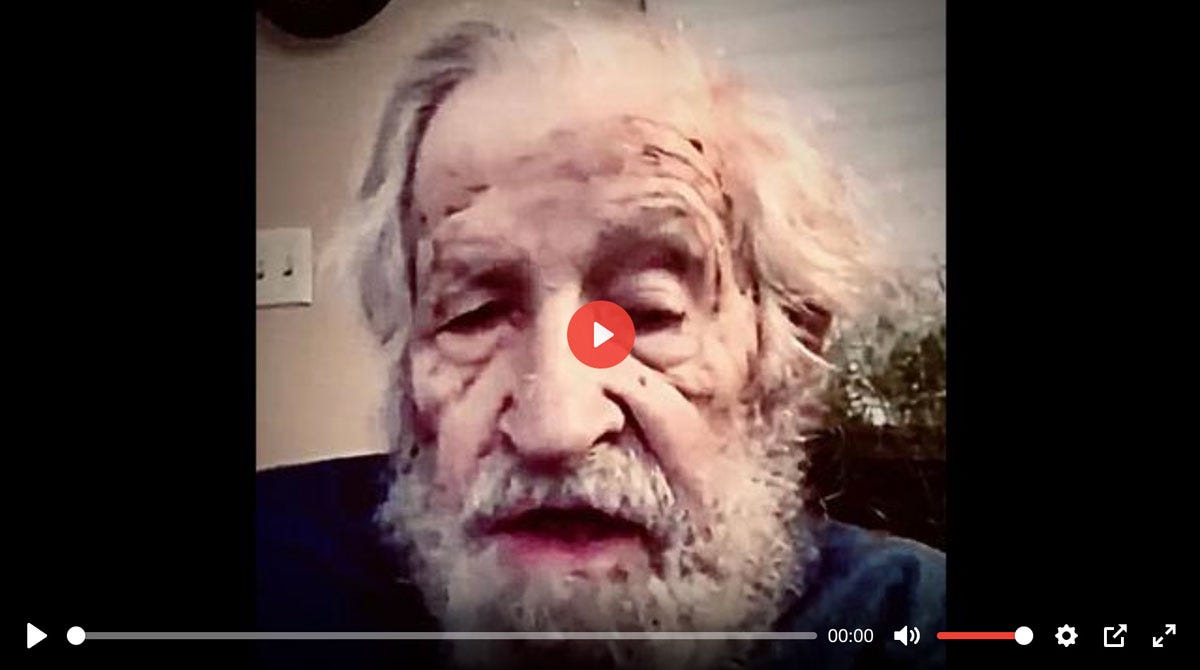
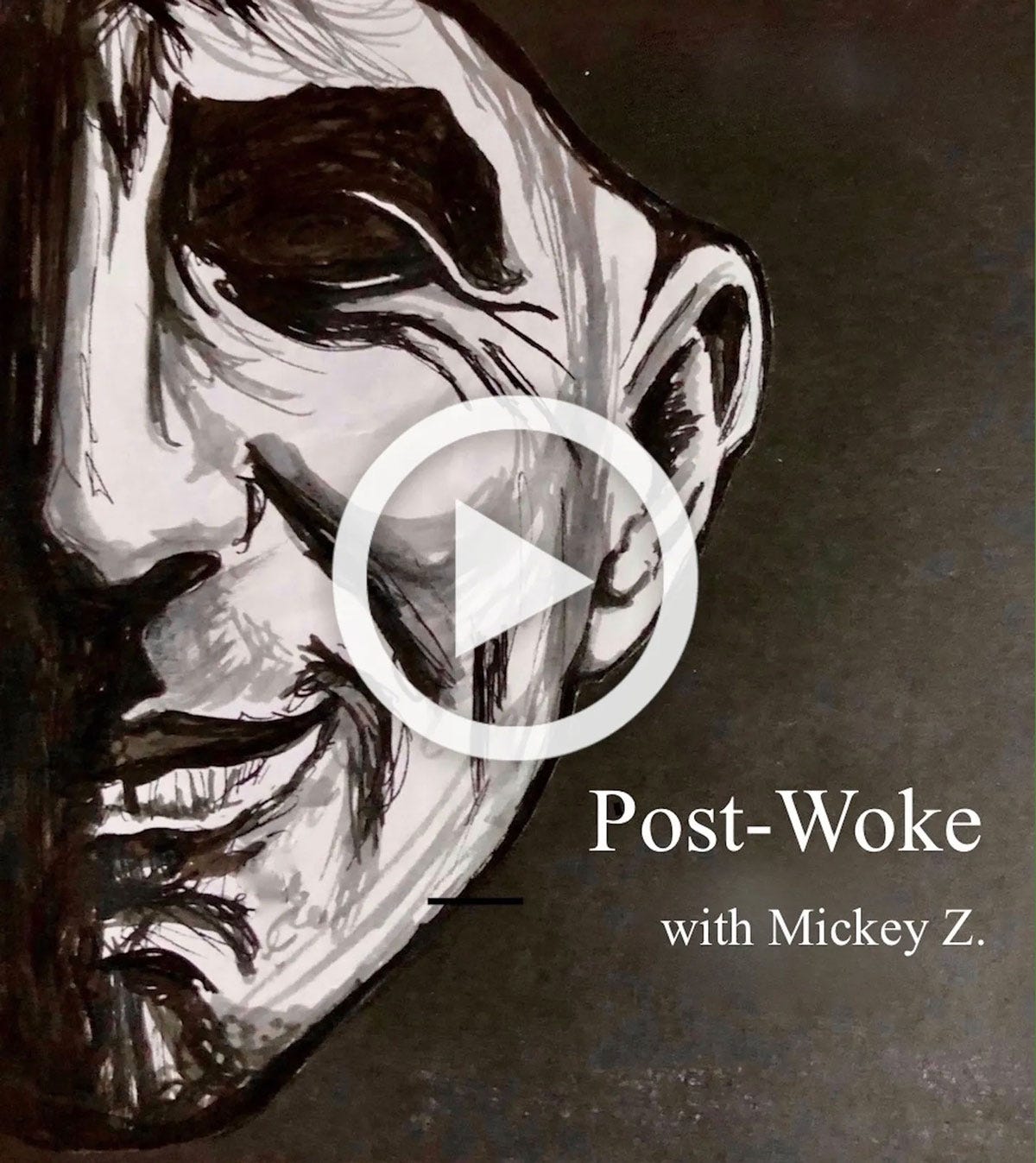

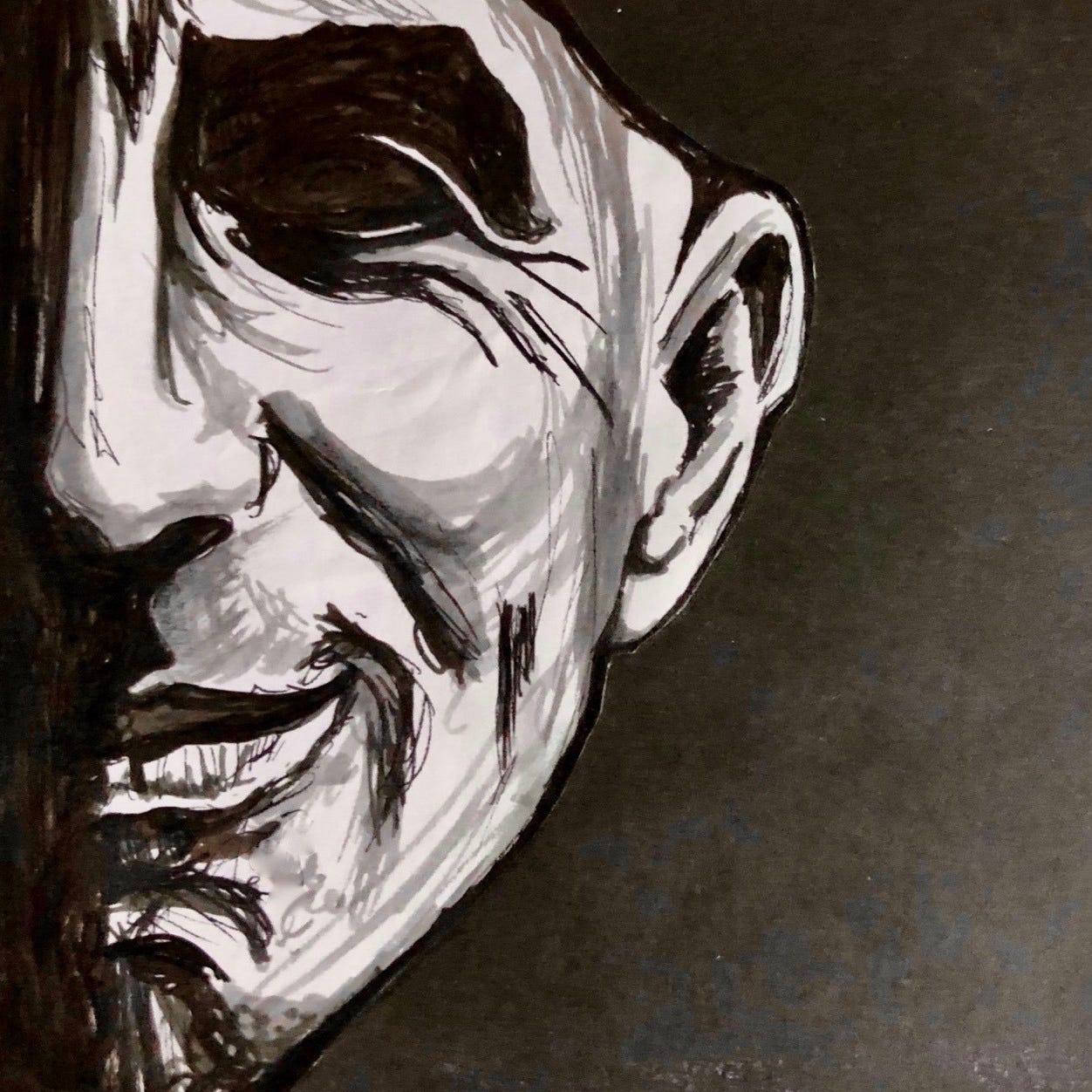
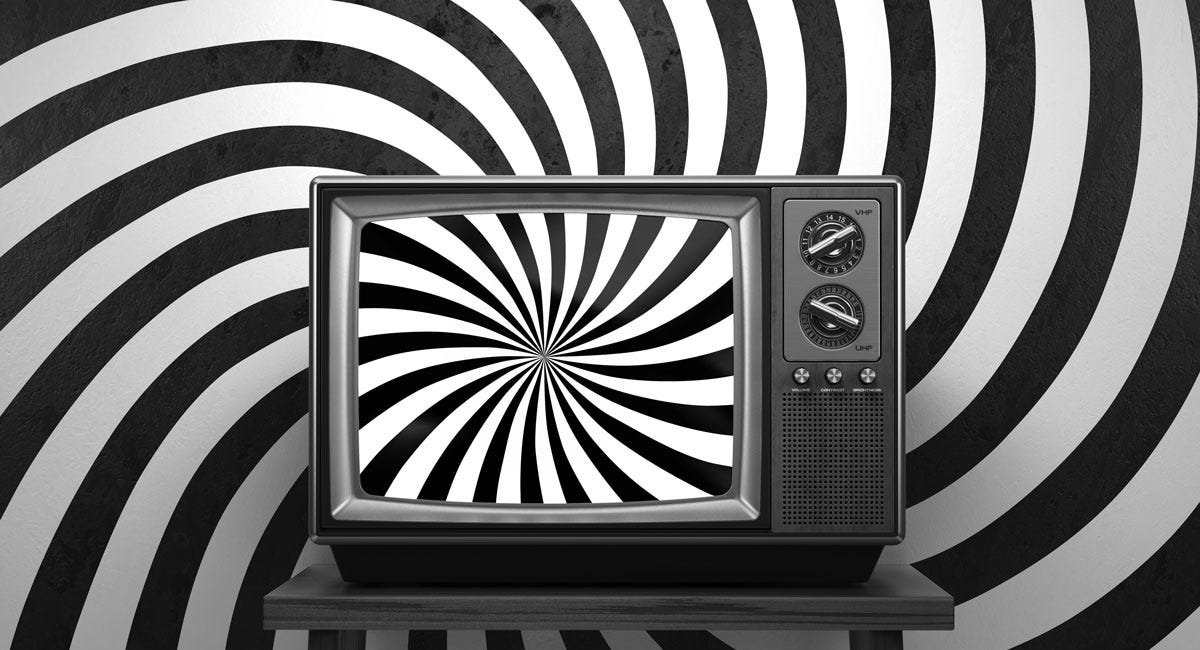


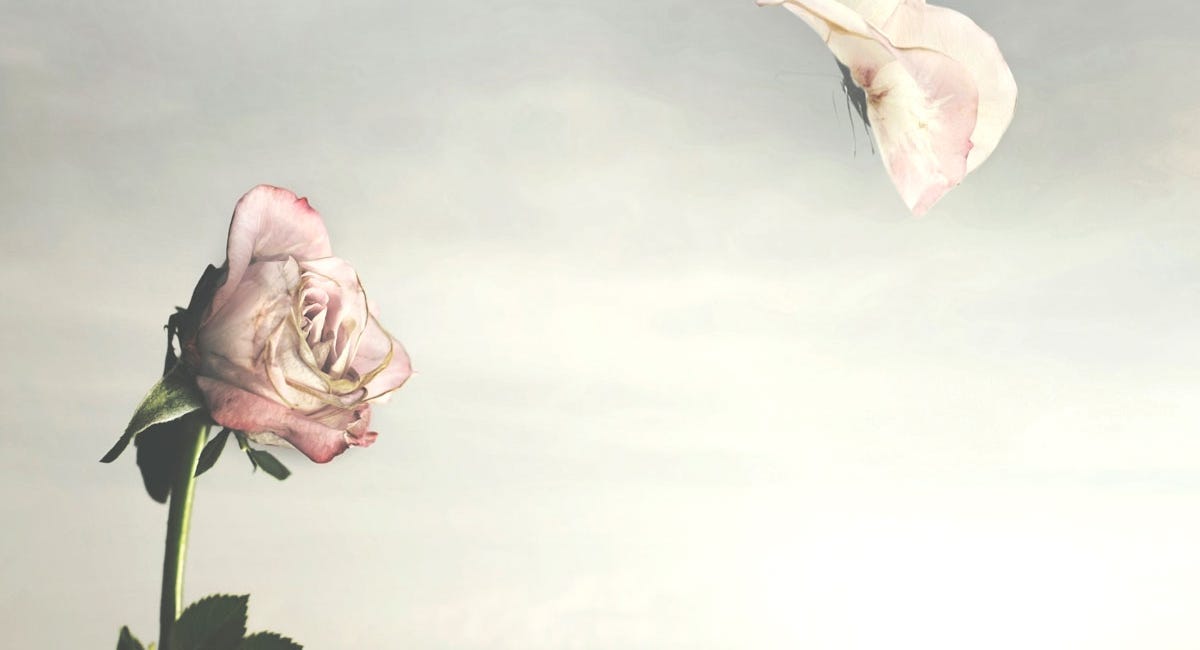

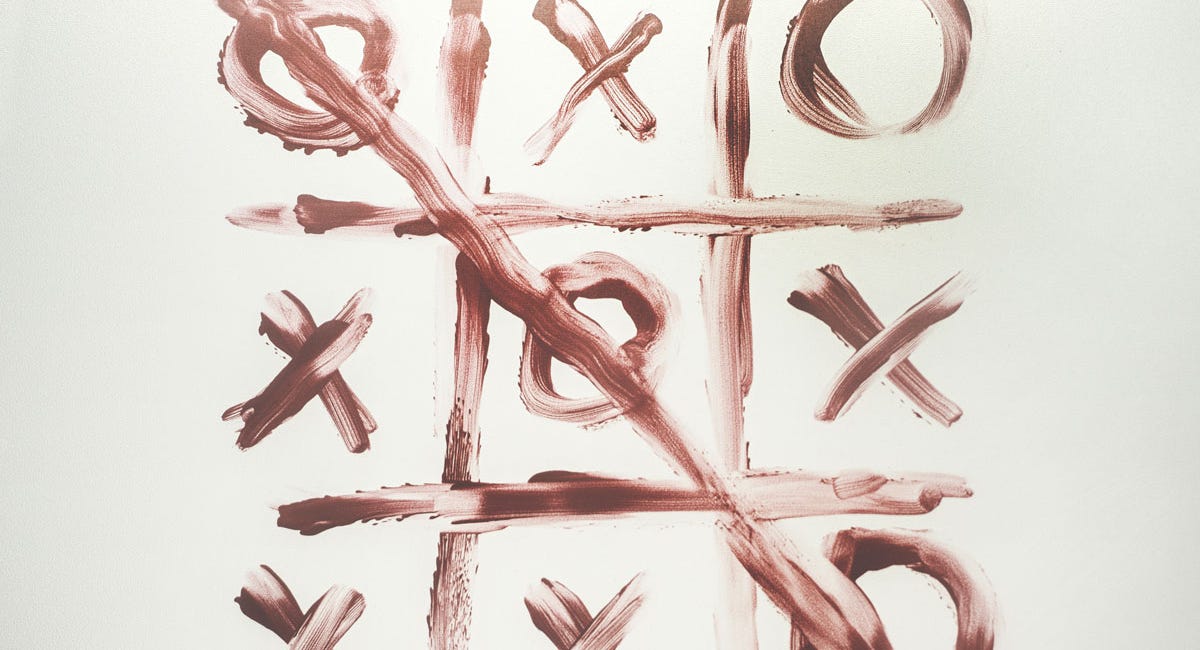
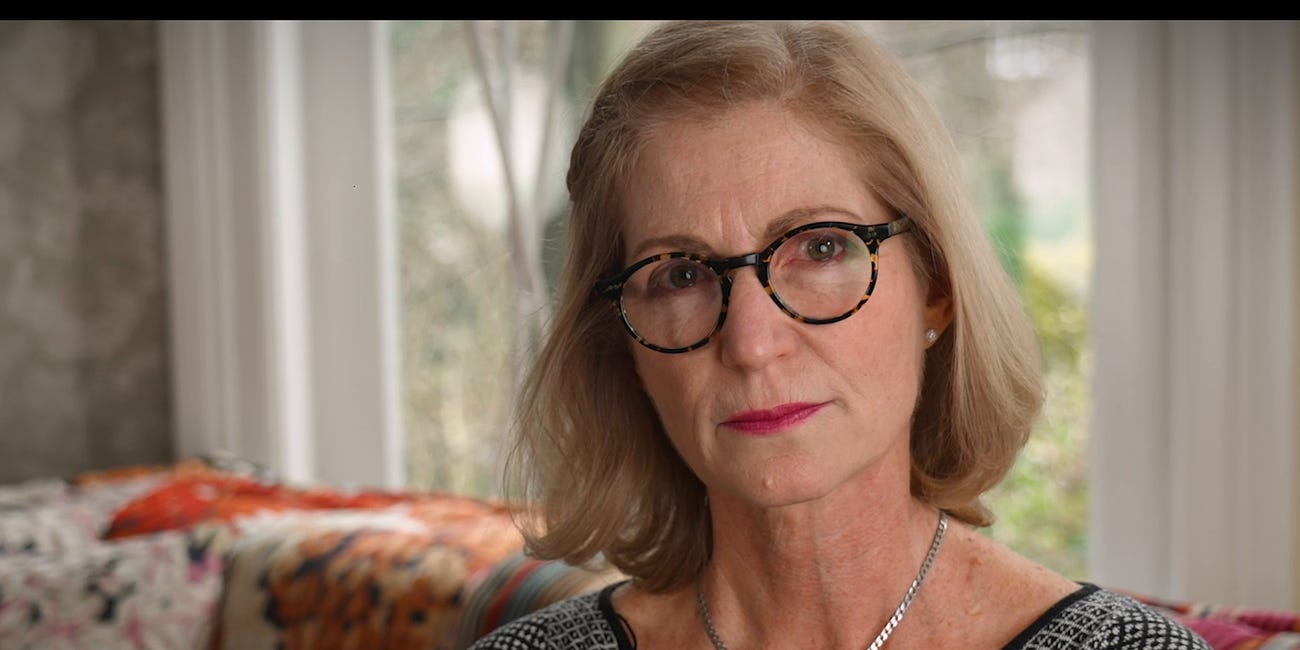
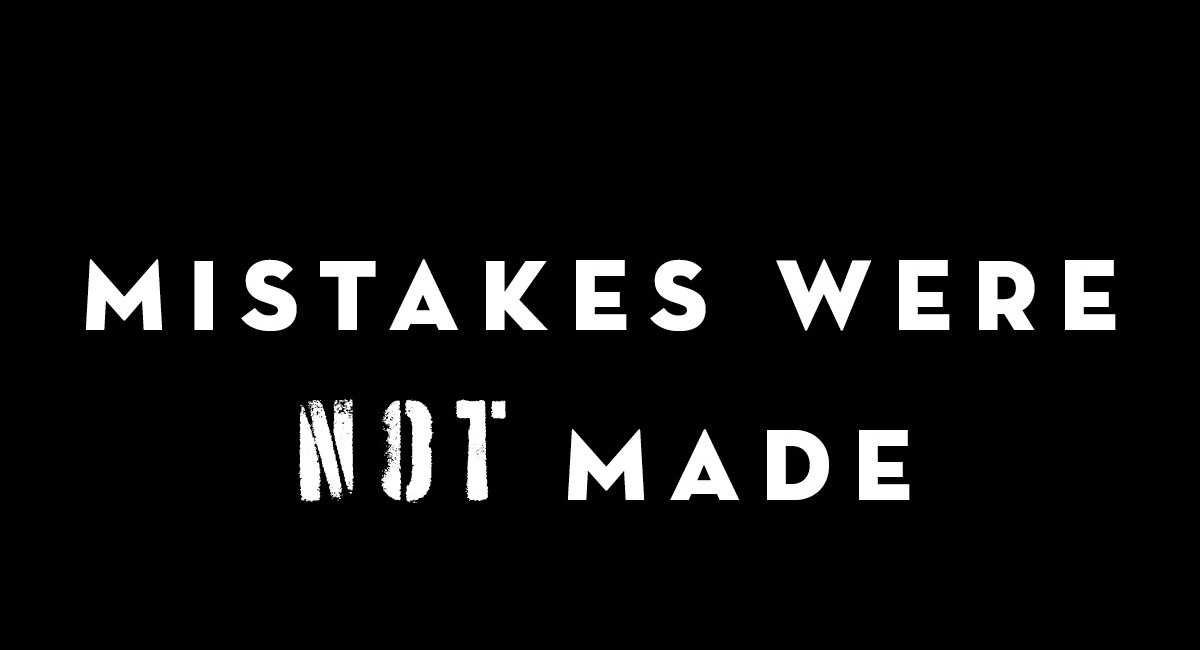
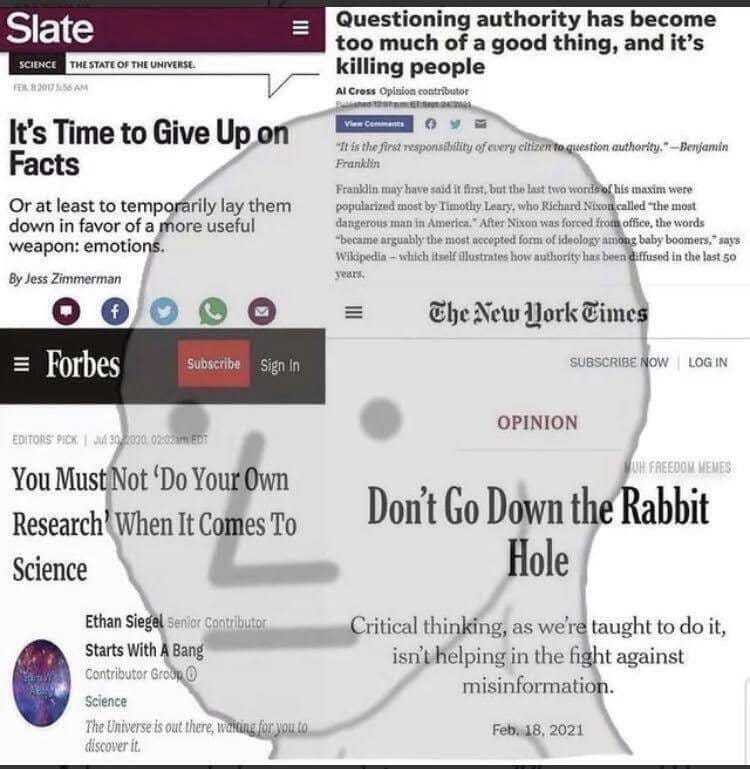
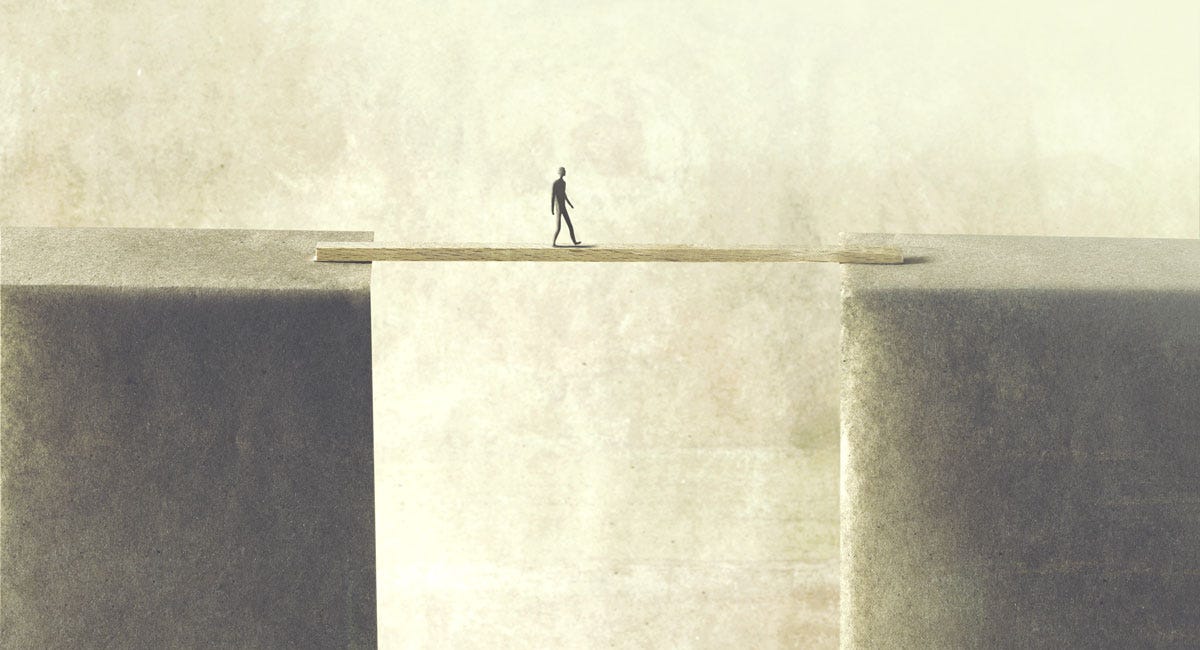
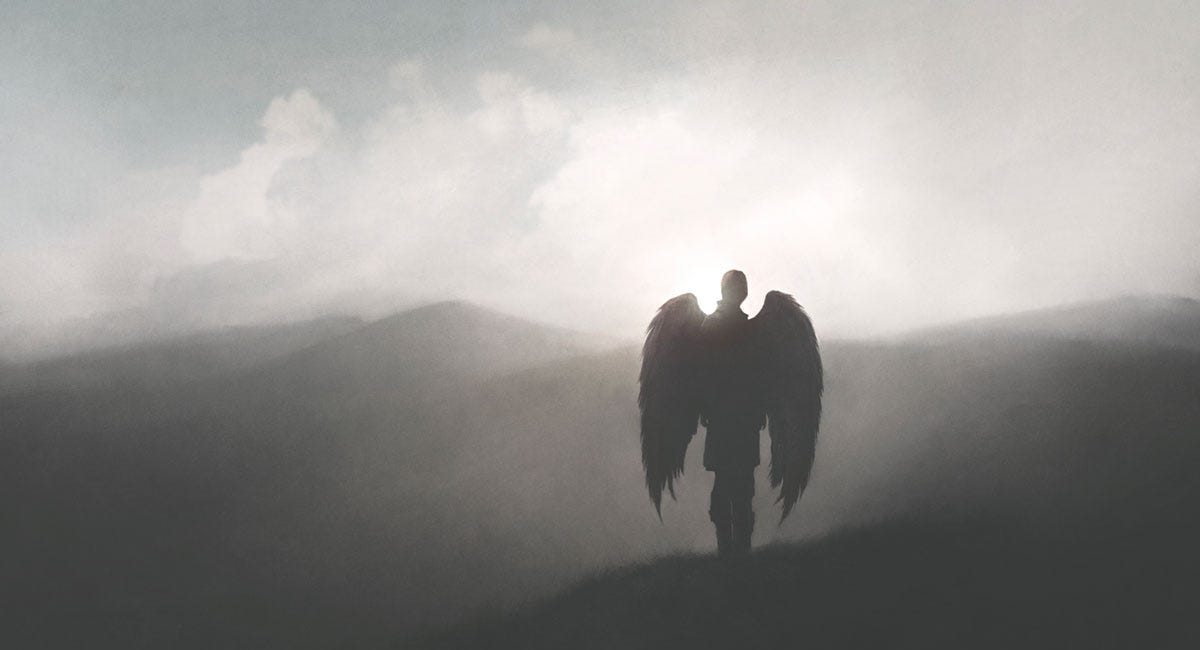
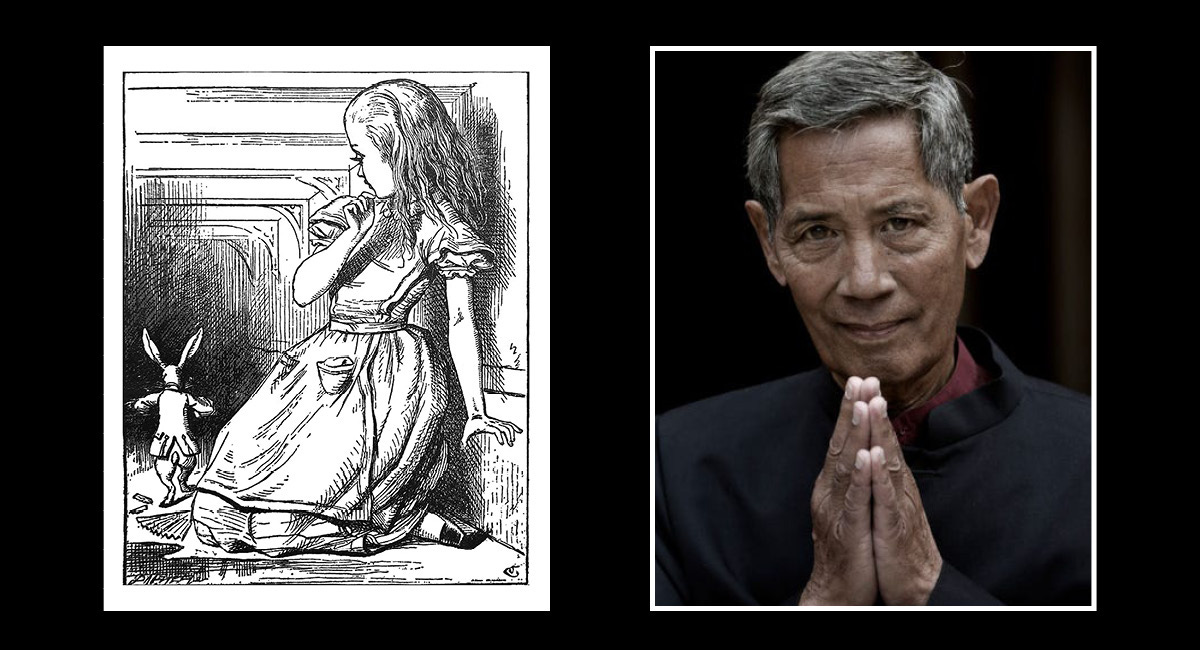

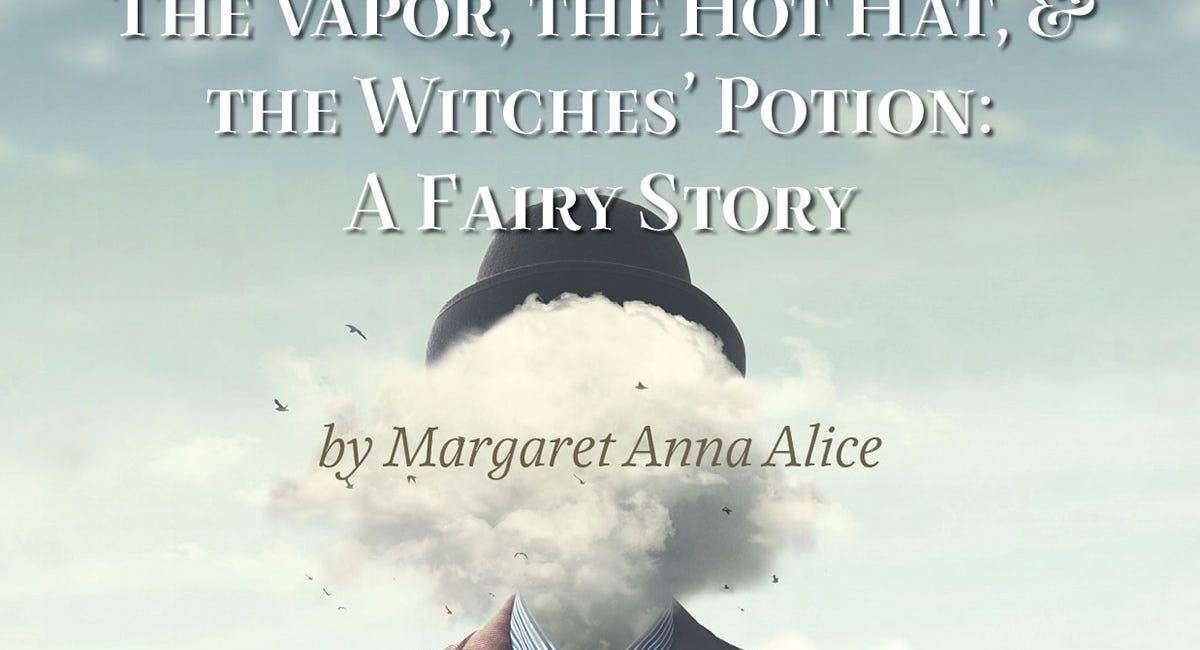

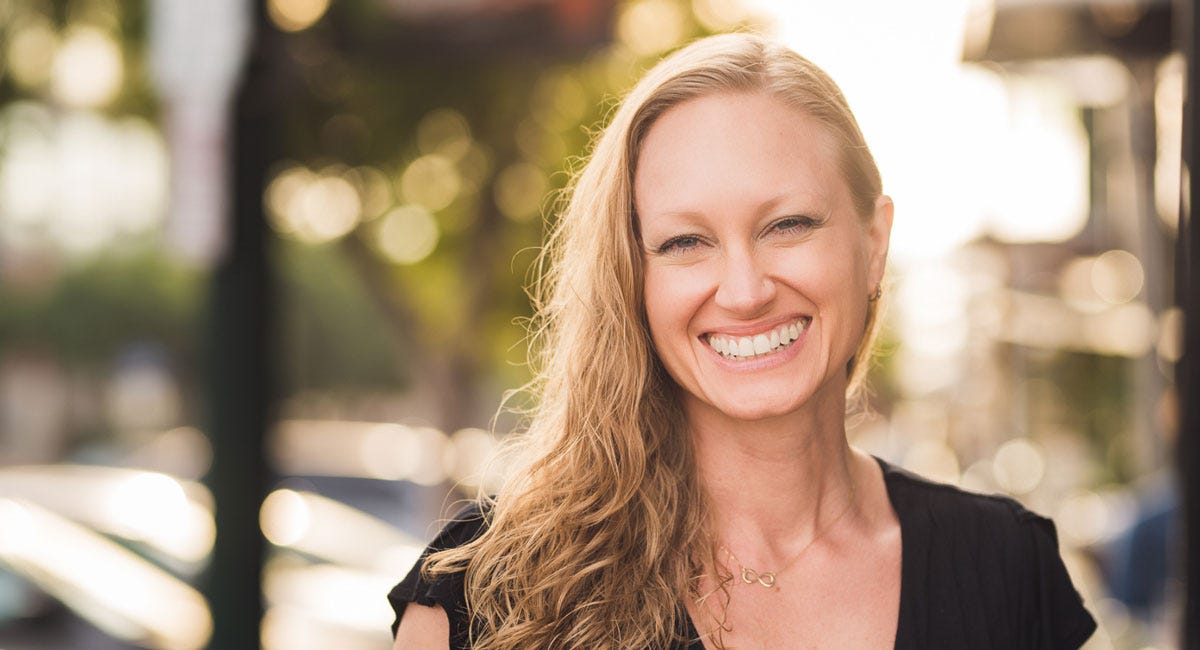





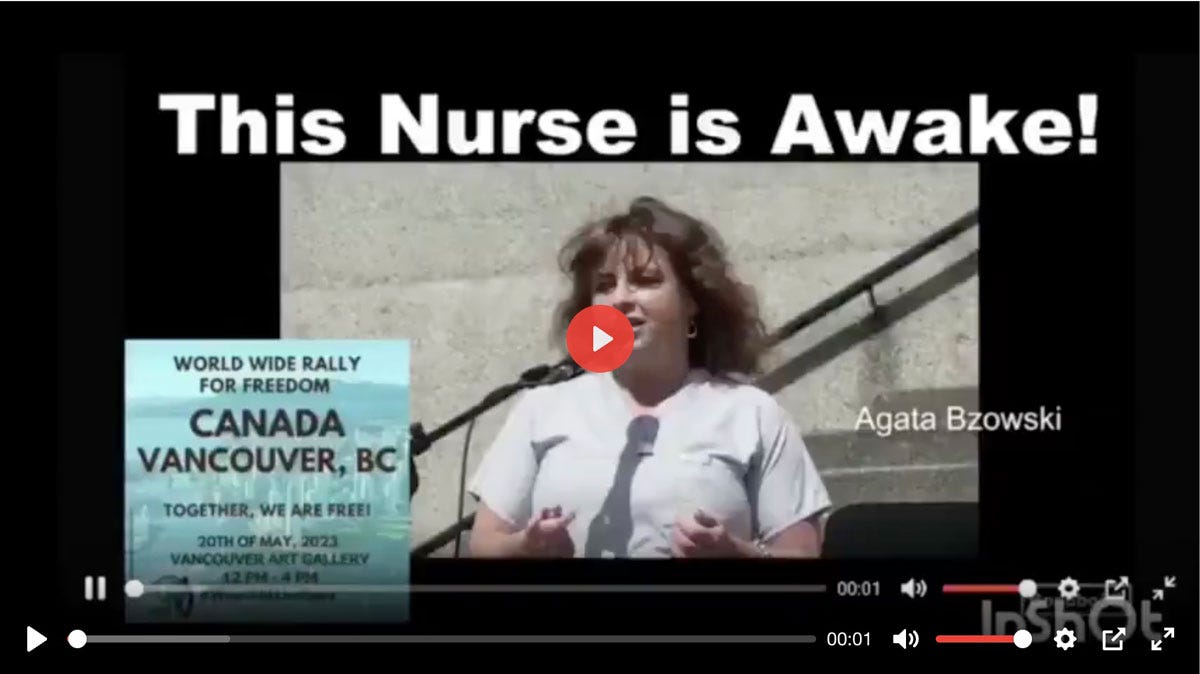
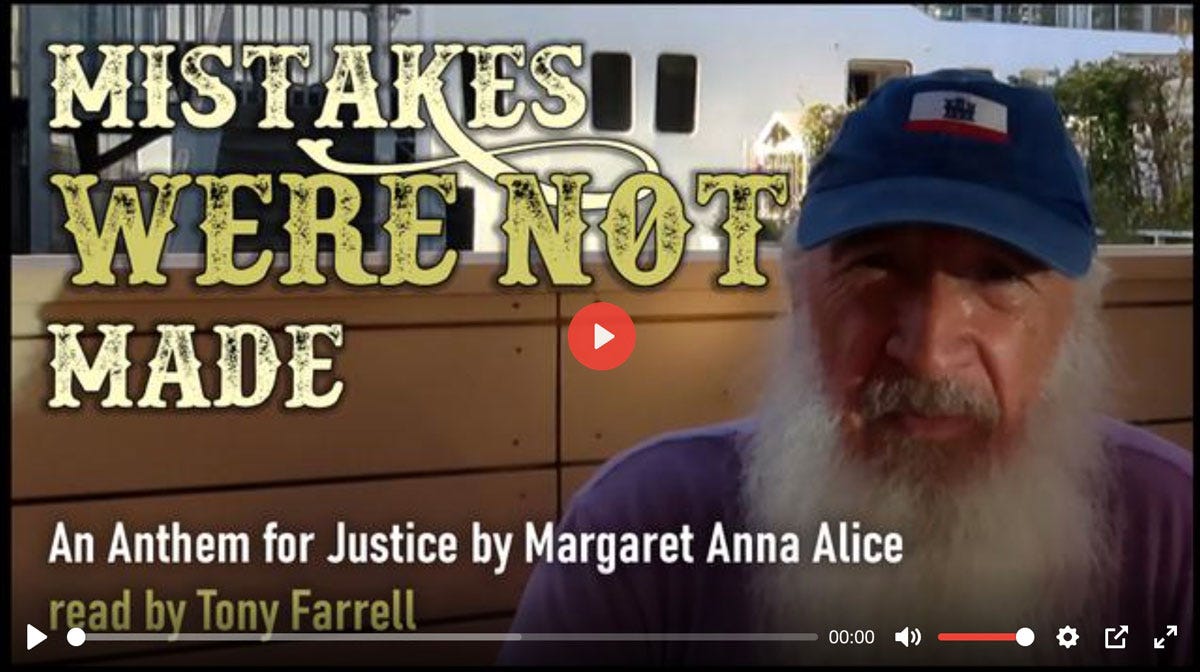



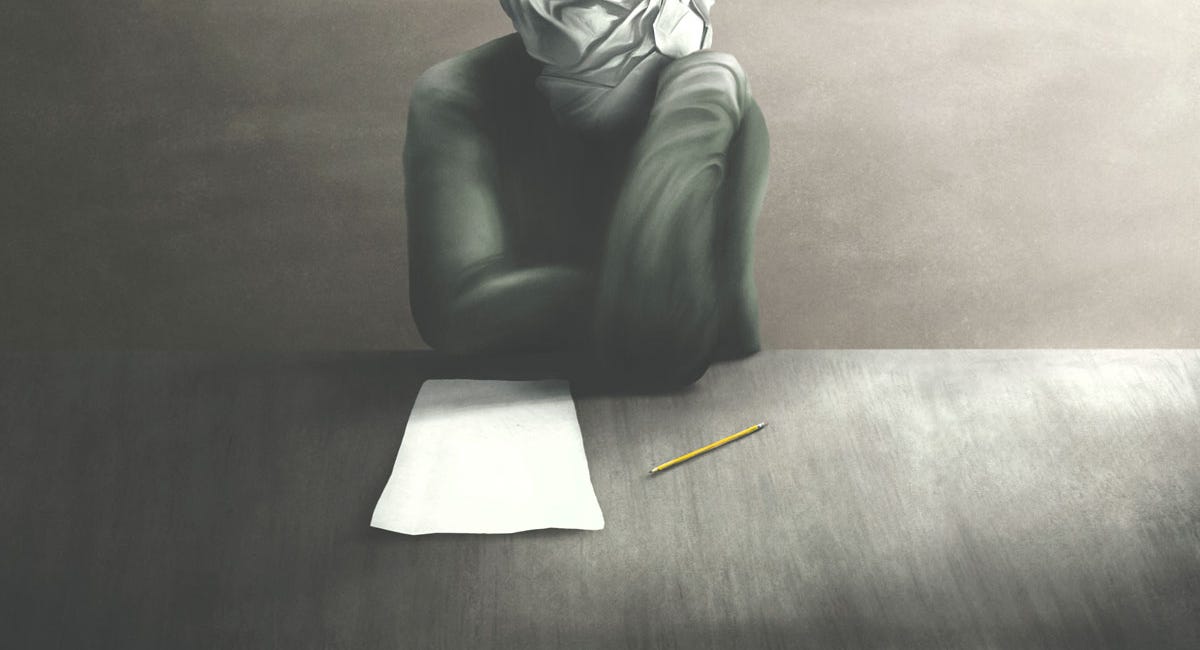
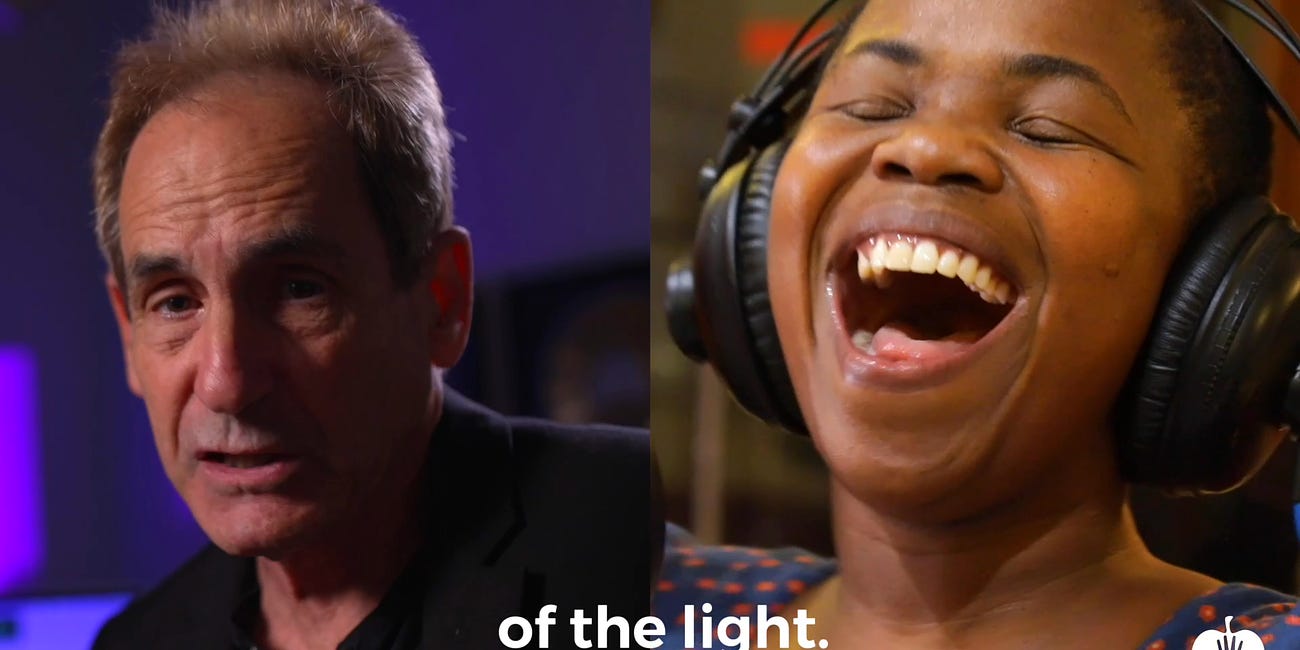
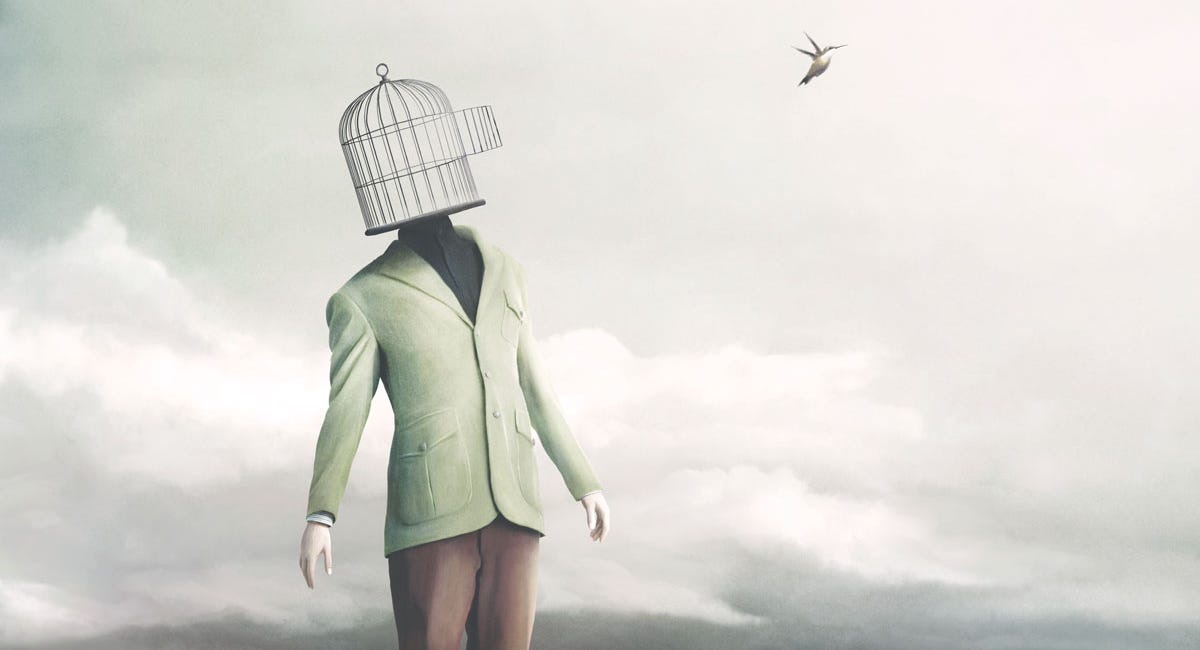
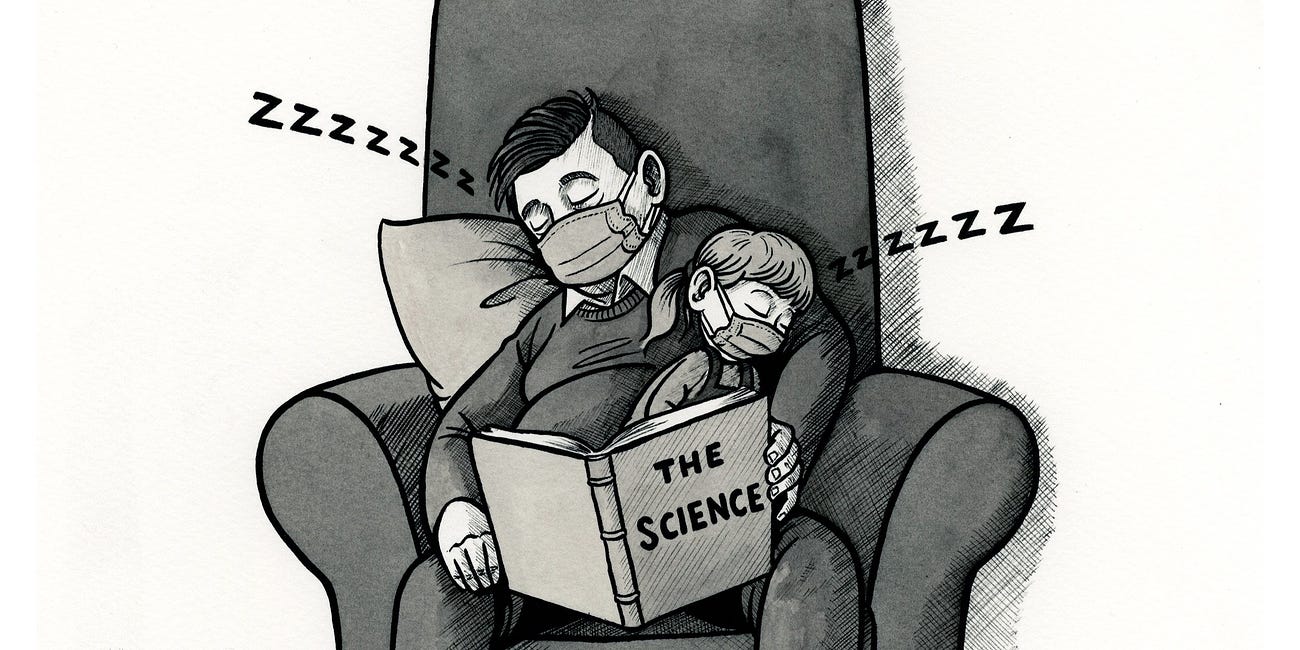
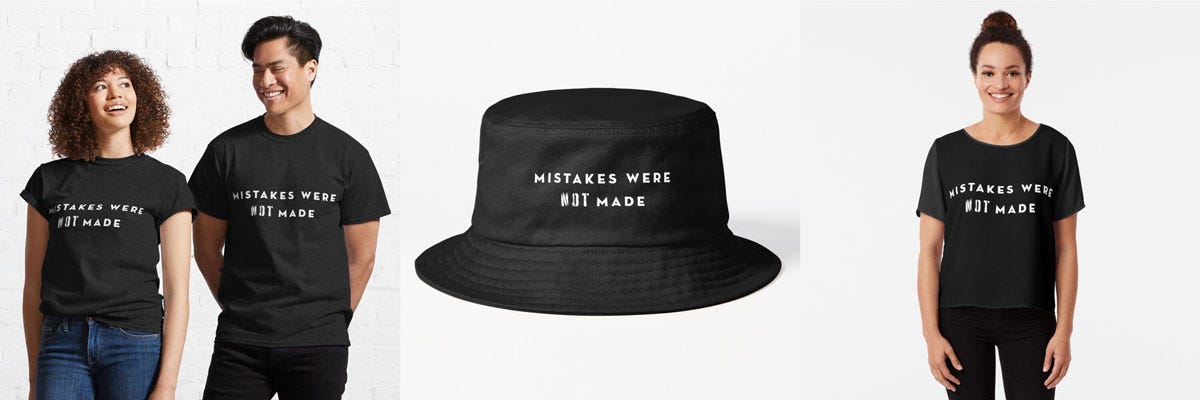
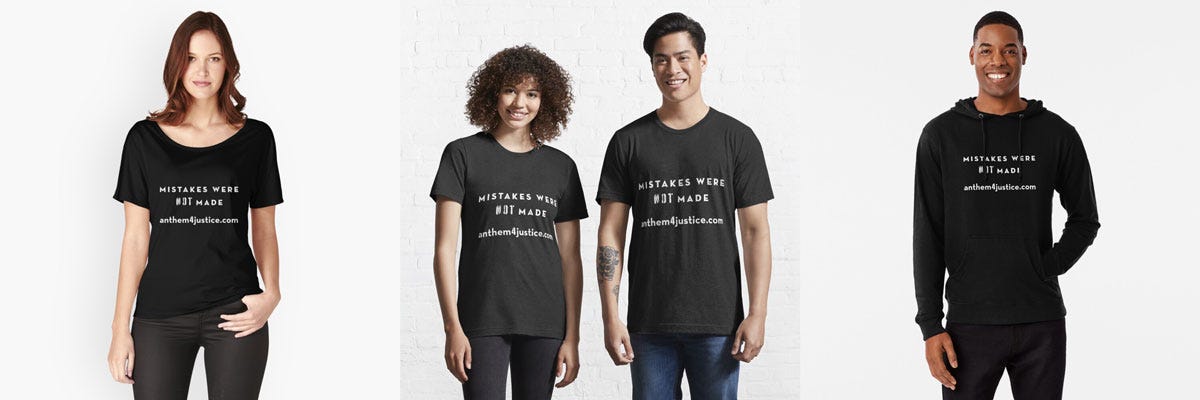
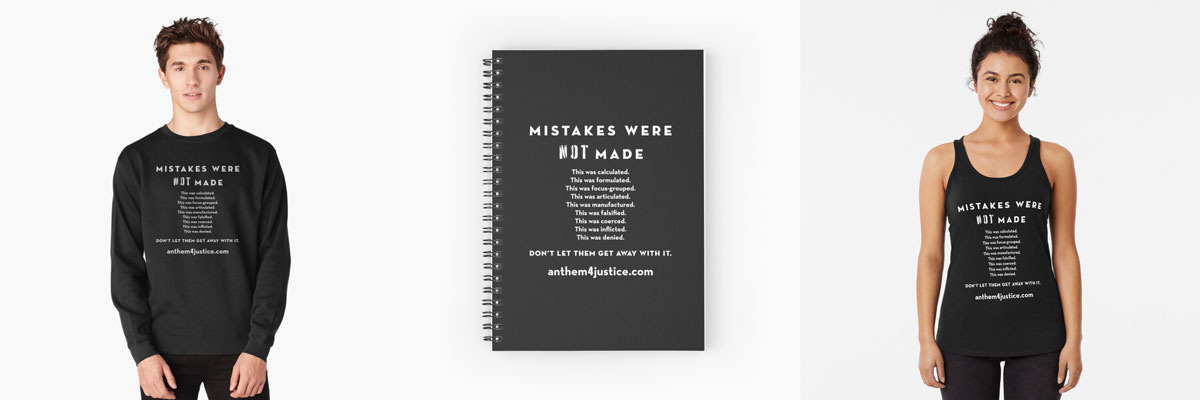
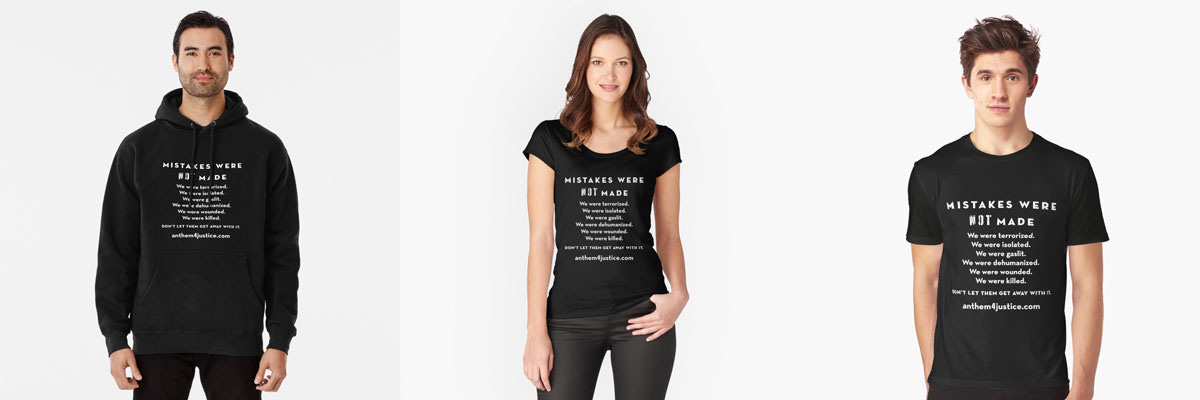
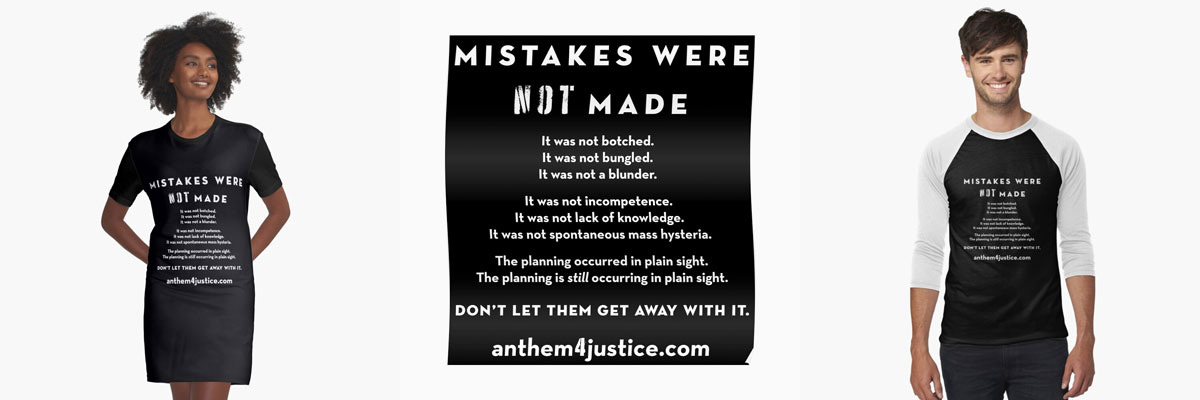

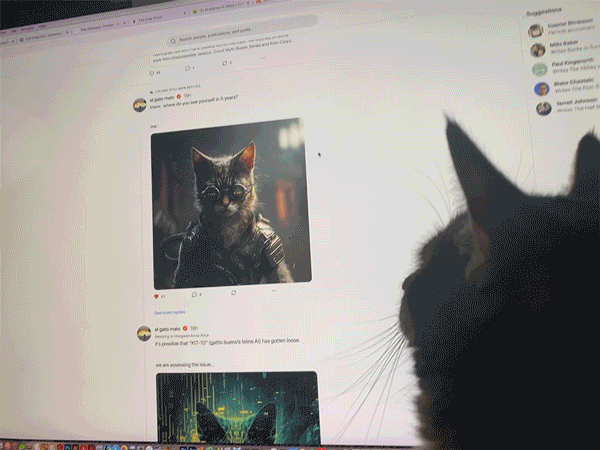

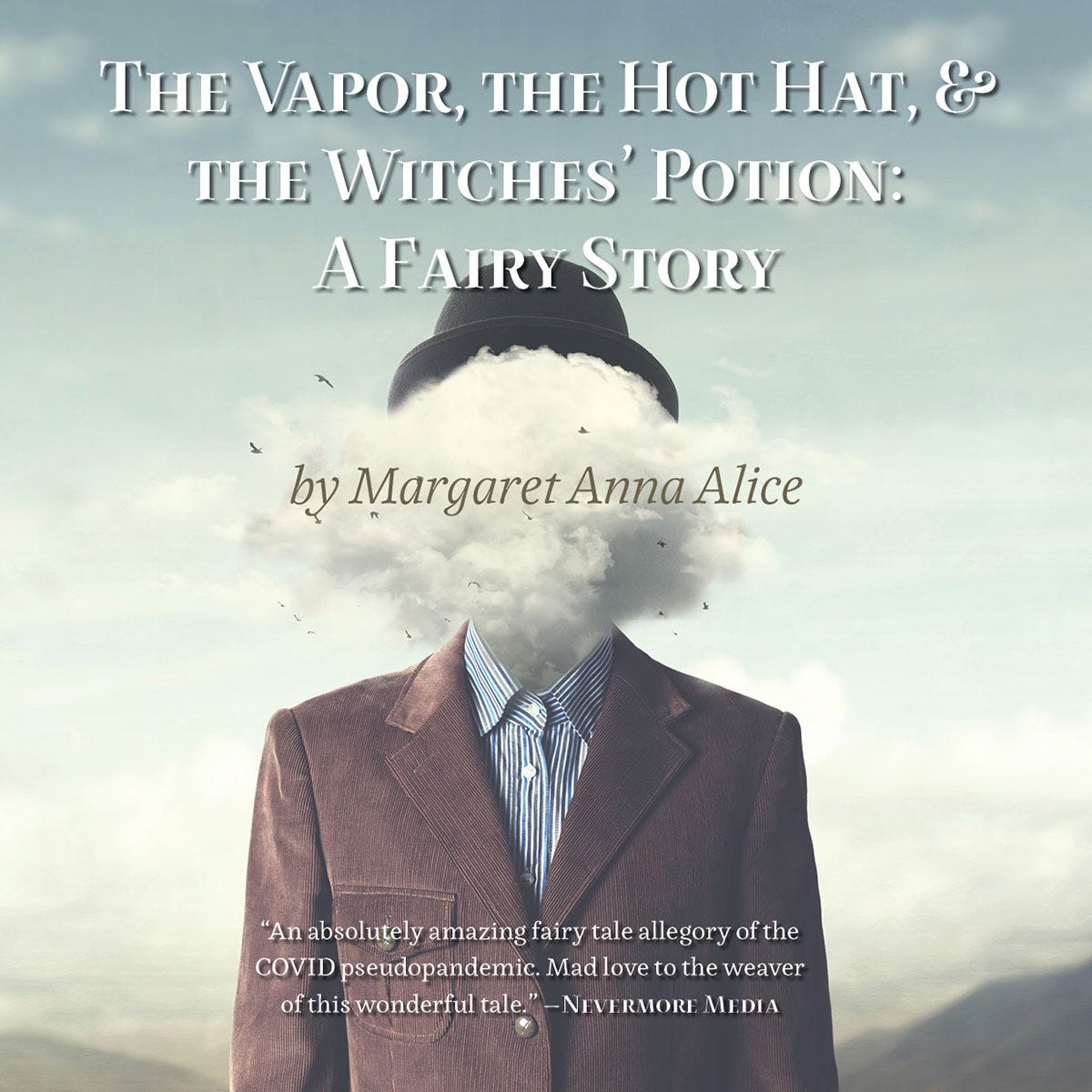

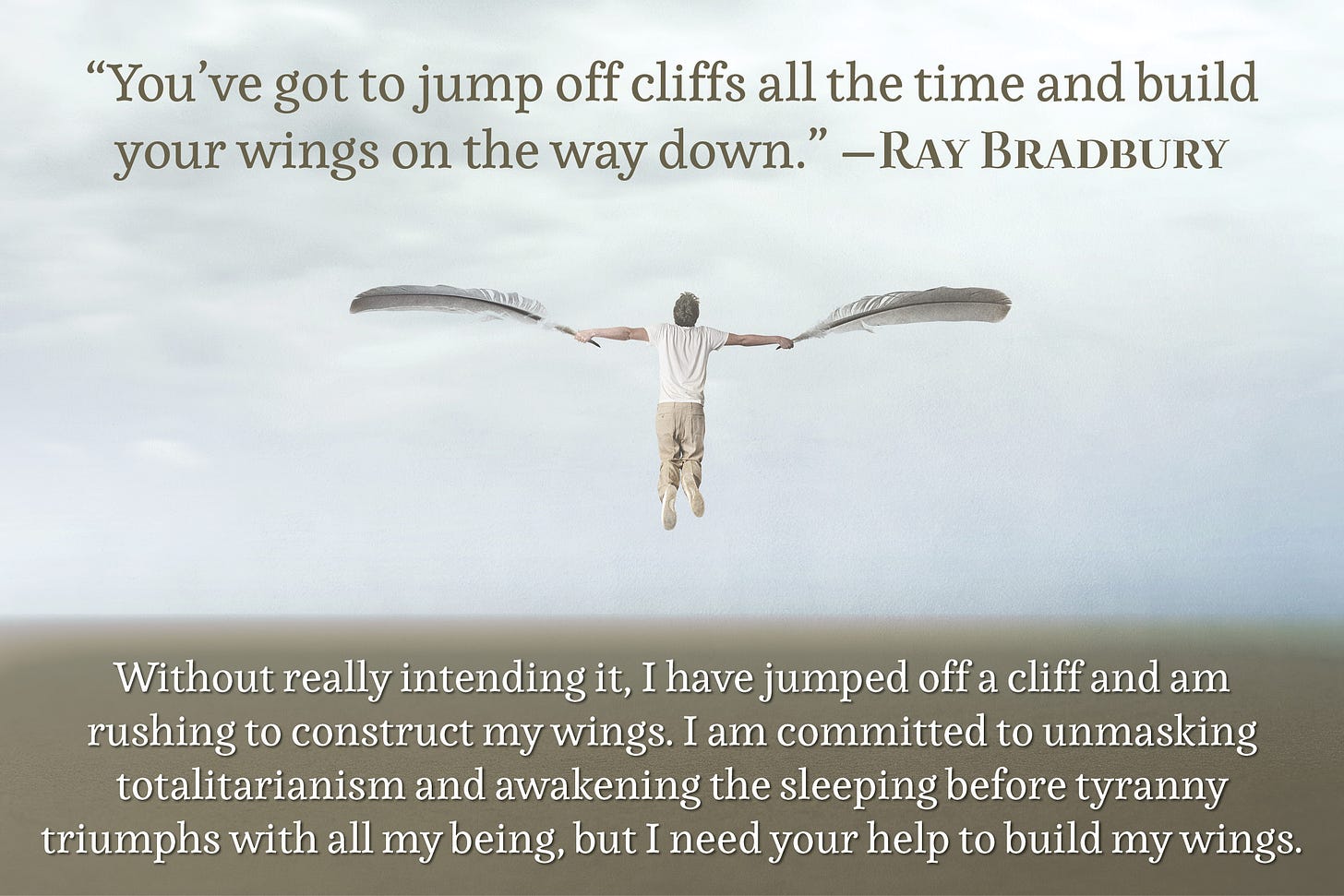

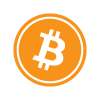


Thank you to everyone who took the time to read the article and listen to or read the interview before knee-jerk–reacting to the mere mention of Chomsky. I realize he is an incendiary figure, particularly for those of us whose isolation and coercion through societal deprivations he advocated for.
As I write in “You Can’t Cancel Me”:
“I may quote or reference someone you disagree with;
“I may quote or reference someone *I* disagree with.”
(https://margaretannaalice.substack.com/p/with-thanks-to-you-you-magnificent#%C2%A7you-cant-cancel-me)
The point of this essay and conversation is not to idealize Chomsky but rather to glean wisdom from his past words, which serve as a “Remember thou art mortal” whisper in our ears and a lesson to forever guard against the cognitive biases and menticidal manipulations Chomsky himself has succumbed to.
If you are tempted to outright reject everything Chomsky (or anyone, even those you generally disagree with) has said simply because he has made other statements you find heinous, ask yourself if you are practicing a form of ideological Cancel Culture that prevents you from being able to find truth wherever it happens to exist.
If you find yourself reaching for ad hominems, consider taking a step back and examining the content of his words quoted in this piece. Do you agree or disagree with what he said about free speech—why or why not?
Those of us who are truth-seekers aim to rise above partisan divides and instead engage on the level of ideas, respectfully refuting them with logic, reason, and evidence if we disagree.
When we find ourselves falling into the trap of attacking those we disagree with, we risk becoming like those who name-call us because they have been propagandized to fear views that counter their brainwashing.
I encourage everyone to listen to the TED talk Mickey cited (https://www.youtube.com/watch?v=3MYEtQ5Zdn8) and ask whether you are living as a soldier or a scout. Do you seek to defend your beliefs at all costs, or do you seek clarity about reality?
Chomsky serves as a cautionary lesson that it is easy to slip into the role of soldier, even if you once sought to live as a scout.
I strive to practice the latter, and my sense is that if you are here reading this, you do, too.
I won’t be able to respond to every comment individually due to time-sensitive deadlines but wanted to post this comment to encourage respectful discussion of the ideas captured in Chomsky’s quotes and my conversation with Mickey rather than being triggered by the lightning-rod figure of Chomsky himself.
Again, thank you all for being here and for caring about truth, freedom of speech, and humanity 🙌🤗
Chomsky unfortunately later said that unvaccinated people should lose their basic rights. This was the end of Chomsky as an intellectual and philosopher